Where the worldwide
spectrum community meets
Where the worldwide
spectrum community meets
The 9th MENA Spectrum Management Conference took place in The Conrad, Abu Dhabi, Etihad Towers, on 6 – 7 September alongside the 33rd ASMG preparatory meeting.
During the event, attendees had the opportunity to be involved in discussions on the key spectrum topics for the MENA region and beyond, through interactive sessions, networking opportunities, an exhibition area and much more.
This event is part of The Global Spectrum Series. The world’s largest collection of regional spectrum policy conferences. Click on the images to find out more about the series and to view the event vlog from last year.
This September marked the 9th edition of the MENA Management Conference. Hear from some of our speakers and delegates on their key takeaways and view the event photos below.
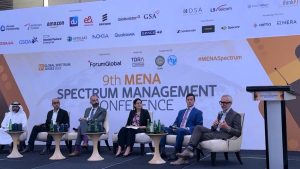
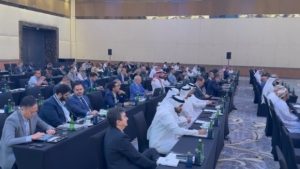
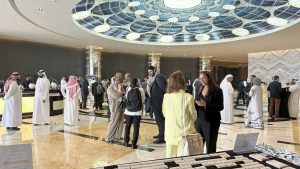
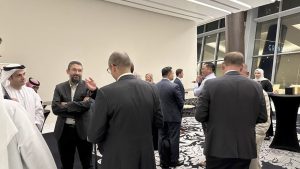
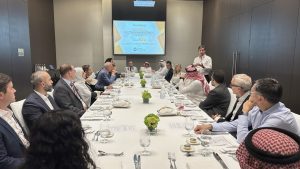
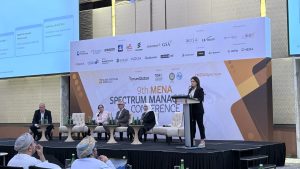
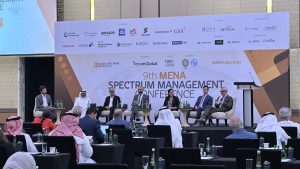
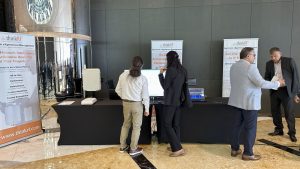
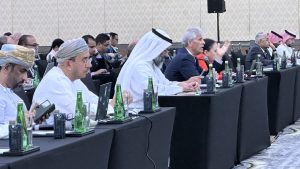
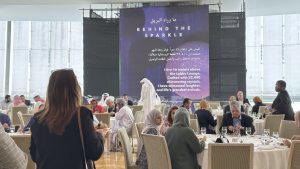
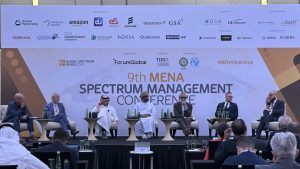
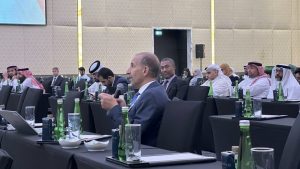
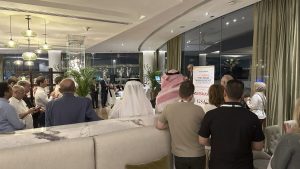
Launched in 2014, and now in its eighth year, The MENA Spectrum Management Conference has previously taken place in Dubai, Marrakech, Abu Dhabi, Tunis and the Kingdom of Bahrain.
Around 100 delegates joined the one day event in Manama, Kingdom of Bahrain in April 2025. Watch the highlights from the two days, and catch up on the sessions below.






























 Forum Global
Forum Global Forum Global is the international arm of Forum Europe, specialising in the organisation of policy-focused conferences on a global level.
Developed in partnership with businesses, institutions, regulators and governments throughout the world, our events provide a platform for stakeholders to engage in topical discussions, strengthen networks and establish new connections.
Since Forum Global’s inception in 2012, we have delivered over 35 major international conferences across North America, South America, Asia, the Middle East, Africa and Europe.
We are tech policy specialists. We have launched international event initiatives focused on the Internet of Things and 5G, and are the creators of the world’s largest series of global conferences on wireless spectrum management issues – the Global Spectrum Series.

 Forum Global
Forum Global The Telecommunications and Digital Government Regulatory Authority (TDRA) of the United Arab Emirates (UAE) was established according to the UAE Federal Law by Decree No. 3 of 2003 – Telecom Law, on regulating the telecommunications sector in the UAE. Since its establishment, the TDRA has exceeded expectations by achieving its projected goals in record time.
The role of TDRA focuses on two fields: regulating the telecommunications sector, and enabling government entities in the field of smart transformation.

 Arab Spectrum Management Group
Arab Spectrum Management Group The Arab Spectrum Management Group was established in 1997 to cooperate in the field of Spectrum Management by sharing and exchanging views on the emerging radio communication aspects as well as to manage and coordinate all issues related to Spectrum Management, World Radiocommunications Conferences and other spectrum matters between Arab States.

 ITU
ITU The International Telecommunication Union (ITU) is the United Nations specialized agency for information and communication technologies – ICTs.
Founded in 1865 to facilitate international connectivity in communications networks, we allocate global radio spectrum and satellite orbits, develop the technical standards that ensure networks and technologies seamlessly interconnect, and strive to improve access to ICTs to underserved communities worldwide. Every time you make a phonecall via the mobile, access the Internet or send an email, you are benefitting from the work of ITU.
ITU is committed to connecting all the world’s people – wherever they live and whatever their means. Through our work, we protect and support everyone’s right to communicate.
In line with its mandate and the WSIS outcome documents, the ITU continues playing a key role in WSIS implementation and follow-up.
Find out more here.

 Access Partnership
Access Partnership Access Partnership is the world’s preeminent tech advisory firm. We’ve been helping leading companies navigate complex regulatory challenges and expand their products and services to new markets since 1999. During this time, we’ve also worked closely with governments to offer advice on creating policies and regulations as the landscape continues to change with new and emerging technologies.
Through two decades of experience, Access Partnership has developed effective and proprietary processes that ensure our clients’ goals are achieved every time. With our expertise and experience, we’re able to anticipate future regulations and manage policy trends on a global scale.
Their mission is to ensure that everyone has access to transformative technologies while promoting fair competition and consumer choice.

 Analysys Mason
Analysys Mason Analysys Mason is the world’s leading management consultancy focused on telecoms, media and technology (TMT). They give clarity and confidence in answering our clients’ biggest commercial questions: What strategy will best enhance value? What implementation plan will be most successful? What is the optimal positioning for five years’ time?
Analysys Mason bring together commercial and technical expertise across four interconnected consultancy practices strengthened by globally respected research.


 Du
Du Since our inception in 2006, we’ve worked tirelessly to enhance and expand our services in an industry that’s at the heart of economic and social transformation. From the very beginning, our mission has been to add life to life, offering mobile, fixed services, broadband connectivity, and IPTV solutions to homes and businesses across the UAE.
Now, as we lead the way into a digitally enabled tomorrow, we offer an expansive range of innovative mobile, broadband, ICT, network infrastructure, and fintech services. Our digital-first approach, powered by ultra-reliable fibre and 5G technology and supported by a robust partner ecosystem, delivers exceptional customer experiences.
Our commitment to our customers remains strong, with a focus on meeting their evolving needs. By doing so, we actively contribute to the UAE’s digital transformation and the advancement of businesses and society, shaping a more interconnected and digitally advanced world.

 e&
e& Since 1976, we have pioneered new technologies and brought these to new people and new places. First as the Emirates’ telephone company, today as the global technology group, e&.
We operate in 38 countries across Middle East, Asia, Africa and Central and Eastern Europe.
We enrich the lives of 175 million customers every day.
With 48 years of experience, we started over four decades ago in the UAE as the country’s first telecoms company.

 Ericsson
Ericsson Ericsson is a world-leading provider of telecommunications equipment and related services to mobile and fixed network operators globally. Over 1,000 networks in more than 180 countries utilize our network equipment and 40 percent of all mobile calls are made through our systems. We are one of the few companies worldwide that can offer end-to-end solutions for all major mobile communication standards. Communication is changing the way we live and work. Ericsson plays a key role in this evolution, using innovation to empower people, business and society. We provide communications networks, telecom services and multimedia solutions, making it easier for people all over the globe to communicate.

 Globalstar Inc.
Globalstar Inc. Globalstar is a next-generation telecommunications provider delivering reliable, next-generation connectivity solutions through both satellite and terrestrial infrastructure. With a proprietary satellite network and exclusive access to licensed mid-band spectrum (Band 53 and Band n53), Globalstar offers end-to-end voice, data, and asset tracking services that power critical operations across enterprise, government, and consumer markets. From emergency communications and IoT deployments to private wireless and spectrum-based solutions, Globalstar delivers the resilient coverage and flexibility a connected world demands.
Headquartered in Covington, Louisiana, with regional offices around the globe, Globalstar is more than its technology; it’s a team of dedicated engineers, sales leaders, developers, and operations experts driven by a shared mission:
To make connectivity seamless, secure, and accessible anywhere on Earth.

 GSA
GSA GSA (the Global mobile Suppliers Association) is a not-for-profit industry organisation representing companies across the worldwide mobile ecosystem engaged in the supply of infrastructure, semiconductors, test equipment, devices, applications and mobile support services.
GSA actively promotes the 3GPP technology road-map – 3G; 4G; 5G, – and is a single source of information resource for industry reports and market intelligence. GSA Members drive the GSA agenda and define the communications and development strategy for the Association.
The GSA Spectrum Group develops strategies and plans, and contributes studies and technical analysis to international, regional and individual country policy-makers and regulators to facilitate the timely availability of spectrum for use by mobile network operators.

 GSMA
GSMA The GSMA represents the interests of mobile operators worldwide, uniting nearly 800 operators with more than 250 companies in the broader mobile ecosystem, including handset and device makers, software companies, equipment providers and Internet companies, as well as organisations in adjacent industry sectors. The GSMA also produces industry-leading events such as Mobile World Congress, Mobile World Congress Shanghai and the Mobile 360 Series conferences.

 GSOA
GSOA GSOA is a non-profit organisation established with the objective of serving and promoting the common interests of satellite operators from Europe, the Middle East, Africa and the CIS. The Association today represents the interests of 21 satellite operators who deliver information communication services across the globe. Together ESOA Members provide invaluable communications services to the whole world including emergency communications, live broadcasting, maritime and aero communications, secure services for governments, 24-7 monitoring of industrial processes such as energy plants and a whole range of other communications capabilities that society has come to rely on.

 Hewlett Packard Enterprise
Hewlett Packard Enterprise HPE is a global, edge-to-cloud Platform-as-a-Service company built to transform your business. How? By helping you connect, protect, analyse and act on all your data and applications wherever they live, from edge to cloud, so you can turn insights into outcomes at the speed required to thrive in today’s complex world.
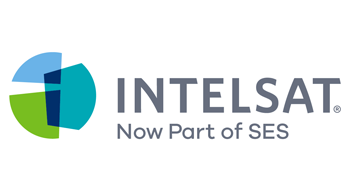
 Intelsat (Now Part of SES)
Intelsat (Now Part of SES) Intelsat operates the largest integrated space and terrestrial network in the world. Each day, we apply our unrivaled expertise and global reach to connect people, businesses, and communities—no matter how challenging. We’re redefining the future of global communications with the world’s first hybrid, multi-orbit, software-defined 5G network designed for simple, seamless, and secure coverage when and where customers need it most.

 Nokia
Nokia Nokia is a global leader in creating the technologies at the heart of our connected world. Powered by the research and innovation of Nokia Bell Labs, we serve communications service providers, governments, large enterprises and consumers, with the industry’s most complete, end-to-end portfolio of products, services and licensing.From the enabling infrastructure for 5G and the Internet of Things, to emerging applications in virtual reality and digital health, we are shaping the future of technology to transform the human experience.

 Qualcomm
Qualcomm Qualcomm’s technologies powered the smartphone revolution and connected billions of people. While many of our inventions and breakthroughs reside “under the hood” of consumer electronics, they have transformed the world in a big way. They have helped propel mobile to the forefront of the technology world and to the top of consumers’ wish lists. They have created new opportunities for mobile ecosystem players — the wireless device makers, the operators, the developers and the content creators of the world. And more recently, our inventions and breakthroughs have inspired fresh, new ideas from those companies — large and small — new to the wireless space. We are engineers, scientists and business strategists. Together, we focus on a single goal — invent mobile technology breakthroughs. We pioneered 3G and 4G — and now, we are leading the way to 5G and a new era of intelligent, connected devices. Our products are revolutionizing industries including automotive, computing, IoT and healthcare, and are allowing millions of devices to connect with each other in ways never before imagined.

 Space42
Space42 Space42 is a UAE-based, AI-powered SpaceTech company that seamlessly integrates satellite communications, geospatial insights, and artificial intelligence capabilities for customers globally.
Space42’s business units, Space Services and Smart Solutions, offer a diversified range of use cases.
We are committed to enlightening the world from space through innovative and efficient space services and smart solutions that drive technological advancements and create a better tomorrow.

 Dynamic Spectrum Alliance
Dynamic Spectrum Alliance The Dynamic Spectrum Alliance (DSA) is a global, cross-industry, not for profit organization advocating for laws, regulations, and economic best practices that will lead to more efficient utilization of spectrum and foster innovation and affordable connectivity for all.

 LS Telcom
LS Telcom In a world where smart technologies determine our everyday life more and more, it is increasingly important to ensure global connectivity through wireless communication. This is where we, LS telcom AG, come into play: We deliver technologies and services to national and international regulatory authorities, network operators and vertical markets. 5G and IoT thereby form a main focus, but Defense and Public safety play an important role, too. LS telcom is the global leader in spectrum efficiency. In line with the diversification and commercialization of radio technologies there has been a constant increase in demand for frequency spectrum and its commercial value. Our Smart Spectrum Solutions hereby offer not only a high quality but also numerous designing, planning, management and monitoring options. Spectrum users in over 100 countries rely on our experts and products for efficient spectrum use. With around 235 employees in 15 subsidiaries worldwide we provide not only excellent products and services, but also a high number of diverse (online) trainings.

 Sennheiser
Sennheiser Audio specialist Sennheiser is one of the world’s leading manufacturers of headphones, microphones and wireless transmission systems. Based in Wedemark near Hanover, Germany, Sennheiser operates its own production facilities in Germany, Ireland and the USA and is active in more than 50 countries. With 19 sales subsidiaries and long-established trading partners, the company supplies innovative products and cutting-edge audio solutions that are optimally tailored to its customers’ needs.


 Specure
Specure Specure, an Austrian firm, specializes in developing software for spectrum auctions.
Their EAS auction platform has been fundamental to numerous successful spectrum auctions across Europe and Africa.

 Policy Impact Partners
Policy Impact Partners Policy Impact Partners (PIP) is a global consultancy platform supporting the future of digital connectivity.
PIP bring together senior experts to develop, promote, and impact policy and regulations that enable innovative technologies to positively transform economies and societies.

 thinkRF
thinkRF thinkRF is one of the proud affiliates of the Wesley Clover International, a serial super angel, found or fund over 100 successful Information and Communications Technologies (ICT) companies, either independently or in partnership with other investors. The portfolio currently consists of public and private firms focused on next-generation Cloud and SaaS applications, hardware and services for fixed/mobile communications, video collaboration, customer engagement, analytics and more.
We are revolutionizing spectrum monitoring and intelligence. We provide ultimate visibility to wireless network operators and national regulatory agencies and empower them to optimize and utilize RF spectrum. We not only provide real-time, but also historical data and insights to guide wireless network operators in making informed decisions about their spectrum policies.
We are the leader in software-defined spectrum analysis platforms that monitor, detect and analyze complex waveforms in today’s rapidly evolving wireless landscape. Spectrum eXperience Management (SXM) is our subscription-based wireless network monitoring and intelligence solution. Wireless network operators can characterize, optimize and protect vital RF spectrum networks with real-time and historical insights on the state of wireless technologies.

 Focustel
Focustel FOCUSTEL DMCC is a technology-driven company founded in 2013, providing advanced solutions across network testing, telecom planning, EMF compliance, and transmission systems. With strong international partnerships and deep technical competencies, FOCUSTEL serves telecom operators, regulators, and enterprises with a comprehensive portfolio that includes test and measurement tools, transport and fiber solutions, network visibility, and security platforms.
We support mobile operators, ISPs, and regulatory bodies through services such as spectrum and EMF monitoring, network auditing, troubleshooting, and preventive maintenance strategy development. Our portfolio spans end-to-end testing — from fiber characterization to 4G/5G synchronization validation — and spectrum analysis including interference detection, cross-border audits, and EMF assessment.
FOCUSTEL is also a key provider of technical training and consultancy. Our programs cover 5G/4G technologies, IP/transport, spectrum management, and EMF awareness, helping clients enhance engineering and O&M performance. With trusted partners like VIAVI Solutions, Keysight, Forsk, Mobileum, GMV, , and Wavecontrol, FOCUSTEL empowers stakeholders to improve network efficiency, compliance, and readiness for next-generation connectivity.

 Aetha Consulting
Aetha Consulting Aetha Consulting provides strategic advice to the telecommunications industry and specialises in undertaking rigorous data-driven quantitative assessments to help businesses, regulators and policy makers make major strategic and regulatory decisions. We work with our clients to develop creative and sustainable solutions to the challenges facing them in a constantly changing environment. Aetha helps operators and regulators to analyse the opportunities and threats arising out of changes (whether real or proposed) in their radio spectrum holdings. Throughout the recent unprecedented growth of wireless services, Aetha’s staff have been at the forefront of spectrum policy. Our consultants have assisted regulators to award spectrum and develop regulatory frameworks, including supporting the European Commission to tackle issues such as spectrum trading and the digital dividend. We also support operators to understand their spectrum needs, value spectrum and bid in auctions. Each year we support around 10 bidders in spectrum auctions – a total of over 120 award processes between mid-2011 and 2023 across all regions of the world. Our technical knowledge, combined with our rigorous valuation modelling approach, ensures that our clients are comprehensively prepared for auctions.

 NERA Economic Consulting
NERA Economic Consulting NERA Economic Consulting is a global firm of experts dedicated to applying economic, finance, and quantitative principles to complex business and legal challenges. For half a century, NERA’s economists have been creating strategies, studies, reports, expert testimony, and policy recommendations for government authorities and the world’s leading law firms and corporations. We bring academic rigor, objectivity, and real world industry experience to bear on issues arising from competition, regulation, public policy, strategy, finance, and litigation. NERA’s clients value our ability to apply and communicate state-of-the-art approaches clearly and convincingly, our commitment to deliver unbiased findings, and our reputation for quality and independence. Our clients rely on the integrity and skills of our unparalleled team of economists and other experts backed by the resources and reliability of one of the world’s largest economic consultancies. With its main office in New York City, NERA serves clients from more than 25 offices across North America, Europe, and Asia Pacific.
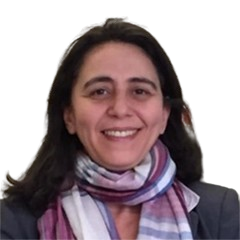
 Ilham Ghazi, Head, Broadcasting Services Division, Radiocommunications Bureau, ITU
Ilham Ghazi, Head, Broadcasting Services Division, Radiocommunications Bureau, ITU In ITU for 17 years, At present: Head of the Broadcasting Services Division at the Radiocommunication Bureau of ITU.
ITU-R activities
– Secretary for WG6B responsible for a.i.10 (future Conferences) at WRC-19, WG5C responsible for fixe, mobile and broadcasting issues at WRC-12 and Appendix-4 revision at WRC-07
– Counselor by interim to ITU-R study Group 6 and its Working Parties In 2018, in parallel to her responsibilities, from February to September 2018.
– Vice Chair of RRC-06 IPG, representing Arab countries (from 2004 to end 2005)
Regional broadcasting planning:
– From 2010 and 2018, successfully led DTT frequency planning in Africa, Arab Region and Central America and Caribbean, to facilitate the Transition to DTT and enable the release of 700/800 MHz bands in those Regions.
– From 2019 to 2021, led the GE84 Plan optimization for Africa to enable more FM frequencies to respond to the increasing demand in FM radio or to transit to Digital radio.
Other responsibilities:
– Vice-president of the ITU appeal Board,
Interim to the BR Deputy Director in the ITU Appointment and Promotion Board,
– One of the 3 Secretaries of ITU NOW4WRC23.
Prior to ITU:
Worked for near 10 years in Moroccan Agence Nationale de Réglemenation des telecommunications, with evolving level of responsibility that included Project manager for an automated frequency management System, head of national frequency planning and head of international frequency coordination Units.
In addition to her Engineering degree, she completed an executive Master in Business Administration, in Ecole polytechnique Federale de Lausanne-Switzerland in 2009.
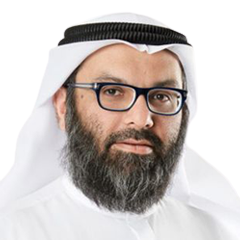
 Tariq Al Awadhi, Chairman, Arab Spectrum Management Group, ASMG
Tariq Al Awadhi, Chairman, Arab Spectrum Management Group, ASMG 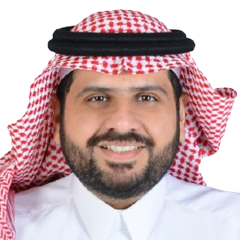
 Ayman T. Maghrabi, General Manager, Radio Spectrum Assignment, CST Saudi Arabia
Ayman T. Maghrabi, General Manager, Radio Spectrum Assignment, CST Saudi Arabia Ayman Maghrabi is the General Manager for Spectrum Assignment at the Saudi Communication, Space and Technology Commission (CST), which is the spectrum regulator in the Kingdom of Saudi Arabia. He received his bachelor’s degree in electrical engineering and a master’s degree in engineering management from King Fahd University of Petroleum and Minerals (KFUPM), and a master’s degree in telecommunications engineering from The University of Sydney.
In his role, Ayman oversees all frequency assignments in the Kingdom and leads initiatives on a national level for releasing commercial spectrum. He has lead three major spectrum releases which include: Non-Terrestrial Networks auction in the 2100 MHz band, IMT auction for (600, 700, 3800) MHz bands, and the award for a national specialized radio network in the 450 MHz band. He is also the head of the National Saudi Team preparing for WRC-27, ensuring national alignment on several Agenda Items and reflecting those position on a regional and international level. He is also appointed as a Vice-Chair for ITU-R Study Group 5 for the current WRC cycle.
Prior to his role in CST, Ayman has worked for more than 7 years in on mission-critical communications as well as other wireless systems such as Smart City telecom planning and radars.
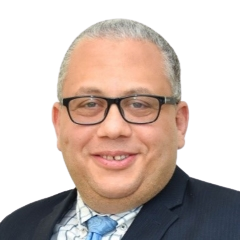
 Mohammed El Moghazi, Executive Director of International Spectrum Affairs, NTRA Egypt
Mohammed El Moghazi, Executive Director of International Spectrum Affairs, NTRA Egypt Dr. Mohamed El-Moghazi is the Executive Director of International Spectrum Affairs at the NTRA of Egypt, Chairman of ATU Spectrum Recommendation Task Group, and Councillor of Egypt at the ITU. Dr. Maghazi is holder of B.Sc. in Communications & Electronics Engineering (Cairo University), Ph.D. in Electrical and Electronic Engineering, Master Degree in Telecommunications Management; Postgraduate Certificate in Research Methodology for Business, Management, and Engineering (University of Strathclyde); Diploma in Communication Management (University of Colorado).
He is the founder of the Global Telecom Policy Researchers Network (GTPRN), a non-profit initiative for researchers in the field of telecommunications policy. He has recently published the book “The International Radio Regulations”, and the book chapters “Towards a Future- Proof International Spectrum Management Policy”, and “Covid-19 Impact on Spectrum Use and Management”.
He is the author of more than 40 papers in prestigious conferences and journals, moderator and proponent of several panels addressing ITU, and speaker at numerous events and conferences. He has presented more than 50 contributions as representative of ASMG, ATU, and Egypt during the last 20 years in different ITU forums and supervised several Master and PhD theses on ITU related issues.
Throughout his career at NTRA, he has been involved in many activities including national broadband plan, digital switchover, 3G and he has been part of NTRA team that achieved the successful 2 billion$ 4G licenses in 2016. He also developed a customized tool to calculate the spectrum requirement for broadband in Egypt for the next ten years. Currently, he is focusing on 5G deployment in Egypt and 6G vision at the ITU in addition to spectrum management support to the African countries.
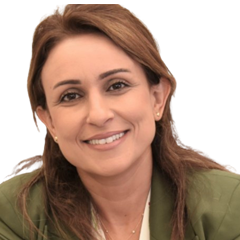
 Sana Souai, Director of Frequency Planning and Technology Monitoring, ANF Tunisia
Sana Souai, Director of Frequency Planning and Technology Monitoring, ANF Tunisia Telecommunication Engineer, Ms. Sana SOUAI LAKHAL has over 18 years of experience in the field of frequency regulation. She began her career in technical spectrum monitoring before being appointed Head of the Network Development Service in 2016. Since 2023, she has been serving as Director of Frequency Planning and Technology Watch.

 Khalid Al Awadi, Senior Manager, Spectrum Strategy, TDRA UAE
Khalid Al Awadi, Senior Manager, Spectrum Strategy, TDRA UAE Khaled Alawadi is the first UAE national scholar to specialize in the design of sustainable cities, Dr. Alawadi is Associate Professor of Sustainable Urbanism at Khalifa University, where he founded the MSc. in Sustainable Critical Infrastructure program. He is a trained architect, planner and urban designer whose research is devoted to urban design, housing and urbanism, especially the relationships between the built environment and sustainable development.
Dr. Alawadi recently served as Visiting Assistant Professor at MIT’s Center for Advanced Urbanism in 2016, and previously worked as an architect for Dubai Municipality and as an Assistant Professor at UAE University. He holds a PhD in Community and Regional Planning from the University of Texas at Austin. And he has curated the National Pavilion UAE which presented Lifescapes Beyond Bigness, an exhibition exploring human-scale architectural landscapes, at the 2018 La Biennale di Venezia, or Venice Biennale. Dr. Alawadi served as a planning expert in the Supreme Committee for Urban Planning in Dubai. He is also a founding and a board member of Emirates Urban Planning Association. Dr. Alawadi’s current research interests address and generate theoretical and analytical debates of timely and relevant topics of urban form, transportation, and sustainable development in the Middle East, with a particular focus on the rapidly evolving cities of Abu Dhabi and Dubai.
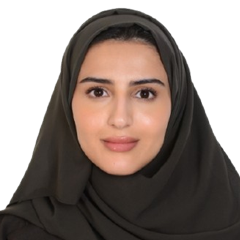
 Sultanah AlDossary, Chairman, Working Group on AI and Spectrum Management, GCC & Senior Analyst, CST Saudi Arabia
Sultanah AlDossary, Chairman, Working Group on AI and Spectrum Management, GCC & Senior Analyst, CST Saudi Arabia Sultanah AlDossary a Senior Analyst at CST with a background in AI and Data. Passionate about exploring the application of AI in Radio Spectrum Management, a niche domain with significant potential for innovation and advancements.
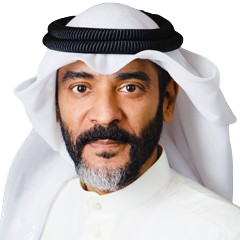
 Ahmed Salman Hamada, Manager of Spectrum Management, TRA Bahrain
Ahmed Salman Hamada, Manager of Spectrum Management, TRA Bahrain More information available shortly.
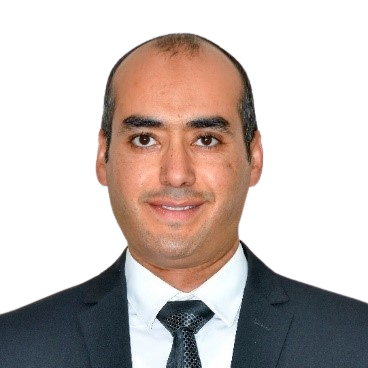
 Tamer Al-Sayed, Manager, Radio Frequencies Assignment & Registration, NTRA Egypt; Chairman of Working Group 2 - Fixed, Mobile and Radiolocation Services, ASMG
Tamer Al-Sayed, Manager, Radio Frequencies Assignment & Registration, NTRA Egypt; Chairman of Working Group 2 - Fixed, Mobile and Radiolocation Services, ASMG Mr. Tamer Sayed is the manager for radio spectrum assignment in the Egyptian National Telecommunication Regulatory Authority (NTRA). He joined NTRA since 2006, from 2012 he started participating in the activities of ITU-R as a member of the Egyptian delegation to the World Radiocommunication Conferences (WRC-15) and (WRC-19).
Mr. Tamer represented Egypt on the ITU-R working parties for around 10 years, served as the chair of Arab Spectrum Management Group (ASMG) WG 3 during WRC-19 study period. As an ITU Expert, he conducted a Workshop on Spectrum Management Strategic Planning and Policies for Wireless Innovation in Algeria on December 2019.
He also is responsible for adopting the NTRA spectrum assignment database. In addition to that, Mr. Tamer proposed new initiatives for achieving more efficiency in the utilization of some frequency bands and managed the implementation successfully.
Mr. Tamer earned a bachelor degree in telecommunications and electronics engineering from Monofiya University in 2004, and a Diploma degree in Computer Networks in 2006.
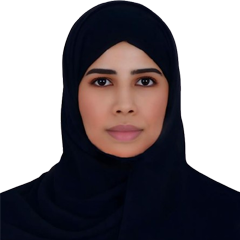
 Khuloud Al Hamedi, Spectrum Allocation Engineer, TDRA UAE
Khuloud Al Hamedi, Spectrum Allocation Engineer, TDRA UAE Khuloud Al Hamedi is a spectrum allocation engineer at the Telecommunications and Digital Government Regulatory Authority (TDRA), where she focuses on managing the spectrum through planning, coordination, and technical analysis to ensure efficient and reliable spectrum use.
She holds a Bachelor’s degree in Communication Engineering from Khalifa University and is pursuing a Master’s in Information Systems Management at Zayed University, with a focus on artificial intelligence (AI), IoT, and digital transformation. Khuloud is passionate about exploring how AI and emerging technologies can optimize spectrum use and drive the future of digital connectivity and she is currently leading the AI-related initiatives within the Spectrum Affairs department at TDRA.

 Ross Bateson, Special Advisor, Spectrum, GSMA
Ross Bateson, Special Advisor, Spectrum, GSMA Ross is a long-term special adviser to the GSMA on government affairs across a number of issues affecting mobile broadband growth. He fulfils this role through his consultancy business RB Communications. Prior to this Ross worked at Access Partnership where he served as a director charged with government affairs and as a financial analyst for the mobile and satellite industries at TelecomFinance.
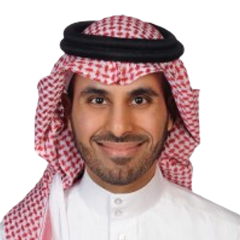
 Dr Ahmed Alsohaily, Board Director, Sheba Microsystems
Dr Ahmed Alsohaily, Board Director, Sheba Microsystems Dr Ahmed Alsohaily is the Group Head of Technology at the Red Sea Global company. Prior to joining the Red Sea Global, Dr. Alsohaily was the Chief Technologist and Chief Advisor for the Governor of Communications and Information Technology Commission (CITC), where he led during his five-year tenure the development and launch of 5G services in the Kingdom that made Saudi’s 5G one of the fastest and highest performing networks globally. In addition, he also played a key role in the development of CITC’s ‘National Spectrum Strategy 2025’ to unlock the potential of radio spectrum in Saudi. As part this initiative, Dr. Ahmed also championed the ‘Spectrum Outlook for Commercial and Innovative Use 2021- 2023’, which led to the launch of WiFi 6E and made Saudi the country with the largest amount of license-exempt spectrum globally.
Prior to his role at CTIC, Dr. Ahmed was a senior member of the Technology Strategy team at TELUS Corporation, where he contributed to the development of end-to-end technology vision that made TELUS’s network the fastest in North America and the world. He also contributed to the development of 5G requirements and standards at the ITU, 3GPP, NGMN and ITU.
In conjunction with his role at TELUS, Dr. Ahmed served as an Adjunct Professor and the Assistant Director of the Wireless Lab at the University of Toronto, where led cutting edge technical research, obtained three patents related to communication technologies and published over twenty academic and industrial papers. Today, he continues to contribute to the research and innovation field as Adjunct Professor at the Institut National de la Recherche Scientifique (INRS) in Canada and is a senior member of the IEEE.
Dr. Ahmed obtained his Engineering undergraduate degree from King Saud University and both his Master of Engineering and PhD degrees from the University of Toronto. Dr. Ahmed is a licensed Professional Engineer (PEng) in Ontario, Canada and also has extensive leadership credentials that include the Program for Leadership Development (PLD) from Harvard University, the Stanford LEAD Corporate Innovation Certificate and the Executive Certificate in Management and Leadership from Massachusetts Institute of Technology (MIT).
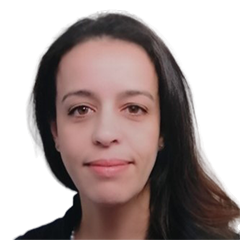
 Fatima Karim, Chairperson, GSA ASMG
Fatima Karim, Chairperson, GSA ASMG 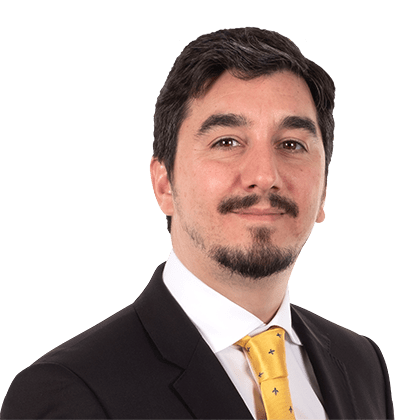
 Juan Cacace, Director of Government Affairs, Space and Connectivity Lead, Access Partnership
Juan Cacace, Director of Government Affairs, Space and Connectivity Lead, Access Partnership Juan is Access Partnership’s Director of Government Affairs, Space and Connectivity Lead. Juan gains market access for new technologies worldwide, by helping companies to comply with regulations as well as obtain licenses and permits for their products and services.
Before joining Access Partnership, Juan worked for more than 10 years in the Legislature of the City of Buenos Aires and in the Argentine National Senate. He holds two bachelor’s degrees, one in Political Science and another in Law, and an MBA from the University of Cambridge. He works in English and Spanish.
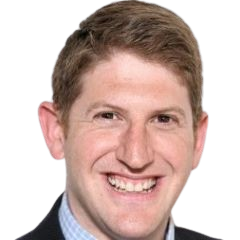
 Saul Friedner, Director, Spectrum Services and Business Development, LS telcom
Saul Friedner, Director, Spectrum Services and Business Development, LS telcom A highly committed and proven consulting professional helping businesses understand the use and implementation of wireless technology. Joined LS telcom in June 2016 to support the growth of the consulting business in the UK and raise awareness of the LS telcom brand.
Expert in writing proposals, winning new clients, and overall business growth with knowledge and expertise of the globally changing world of wireless. He spent 7 years at Ofcom in the UK, involved in many different facets of spectrum management. Saul can bring a fresh outlook on how businesses can benefit from the implementation and deployment of wireless systems, including the adoption of new technologies, procurement of spectrum, and adaptation to new regulations.
Co-author of a number of technical reports for clients. Recent assignments have included work for the European Commission on the socio-economic impacts of 5G in Europe and the regulatory implications of license-exempt use in Europe.
Developed a good understanding of the latest technologies and the rollout of LTE, HSPA+, and DC-HSPA+ devices. Saul has also developed a growing knowledge of Wi-Fi, white space devices, and the commercial and regulatory implications across the industry.
An accomplished business development manager who has helped establish and win new clients by writing successful proposals followed by professional execution and delivery.
Saul has a very good understanding of radio systems, spectrum engineering, and telecommunications projects, with specific experience and knowledge of technical policy and regulatory projects.
Specialties: Business development, pre-sales, RF spectrum planning , advice on regulatory aspects of radio spectrum, knowledge of multiple mobile technologies e.g. GSM, UMTS & LTE Wi-Fi. In addition to DVB-T, DAB, and FM planning. Project management of multi-disciplinary projects for regulators, vendors, and operators. International frequency coordination and harmonised standards: Demand analysis for cellular mobile capacity.

 Nada Abdelhafez, Head of Spectrum & Regulatory Affairs for Middle East and Africa, Shure
Nada Abdelhafez, Head of Spectrum & Regulatory Affairs for Middle East and Africa, Shure Nada Abdelhafez is Head of Spectrum and Regulatory Affairs for the Middle East and Africa at Shure Inc. In her role, she educates and promotes the spectrum needs of the PMSE industry in the MEA region. She influences regulations, ensures access to spectrum, advocates spectrum policy, and promotes new technologies for audio PMSE. Nada works closely with administrations, regulatory authorities, and policymakers to enable PMSE in the MEA.
Before joining Shure, Nada worked for Etisalat UAE, where she was involved in various activities related to spectrum management, technology standardization, and technology regulatory support.
Nada holds a Master’s degree in Electrical Engineering and has several publications related to optimization and deep learning in audio and video streaming.

 Eiman Mohyeldin, Head of Spectrum Standardization, Nokia
Eiman Mohyeldin, Head of Spectrum Standardization, Nokia Eiman Mohyeldin is the Global Head of Spectrum Standardization for Nokia, responsible for defining and executing Nokia’s spectrum strategy and leading Nokia’s engagement on spectrum matters with customers, regulators, authorities, and partners in the ecosystem worldwide. She is actively involved in the World Radio Conference (WRC) process, participating in the WRC conferences and preparatory meetings (CPM). Eiman has also contributed to and led groups for the IMT technology process (4G, 5G, and recently 6G) in ITU and CEPT. Eiman is Co-Coordinator in CEPT NOW4WRC23 promoting gender equity and parity in CEPT and ITU.

 Andreas Wilzeck, Head of Spectrum Policy and Standards, Sennheiser
Andreas Wilzeck, Head of Spectrum Policy and Standards, Sennheiser Dr.-Ing. Andreas Wilzeck is Head of Spectrum Policy and Standards at Sennheiser electronic GmbH & Co. KG, Germany.
He is Vice-Chair of the ETSI TC DECT, was Chair of the ETSI Evaluation Group for IMT-2020 and is an active participant in the standardisation work of various ETSI technical committees. He also participates in WRC, ITU-R, CEPT and other PMSE-related spectrum regulatory work globally.
He received the Dr.-Ing. degree from the Faculty of Electrical Engineering and Computer Science at Gottfried Wilhelm Leibniz Universität Hannover in August 2009.
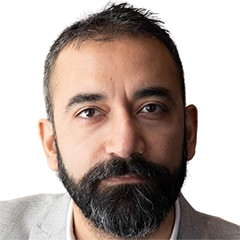
 Ali Cheema, Director Spectrum Regulations, Ericsson AB
Ali Cheema, Director Spectrum Regulations, Ericsson AB Ali Cheema has two decades of experience working in ICT policy advocacy, technology standardization, mobile broadband networks, and radio spectrum harmonization with the aim to facilitate cost effective connectivity.
Cheema is motivated by a strong belief in the catalytic role of mobile broadband for socioeconomic progress in a country, he currently leads a team of experts to drive Ericsson’s ICT policy advocacy efforts across Middle East and Africa in his role as the Head of Government and Industry Relations at Ericsson MEA.

 Jinane Karam, Senior Manager, Government Affairs MENA, Qualcomm
Jinane Karam, Senior Manager, Government Affairs MENA, Qualcomm As a Senior Manager for Government Affairs at Qualcomm, Jinane Karam has lead strategic engagement across the Middle East and North Africa, helping shape the future of digital transformation through public-private collaboration. With a strong background in policy, innovation, and stakeholder relations, she works closely with governments, industry leaders, and partners to advance initiatives in AI, industrial IoT, and wireless technologies. She is also passionate about building bridges between global innovation and regional priorities supporting national visions, regulatory modernization, and sustainable tech ecosystems.

In ITU for 17 years, At present: Head of the Broadcasting Services Division at the Radiocommunication Bureau of ITU.
ITU-R activities
Secretary for WG6B responsible for a.i.10 (future Conferences) at WRC-19, WG5C responsible for fixe, mobile and broadcasting issues at WRC-12 and Appendix-4 revision at WRC-07
Counselor by interim to ITU-R study Group 6 and its Working Parties In 2018, in parallel to her responsibilities, from February to September 2018.
Vice Chair of RRC-06 IPG, representing Arab countries (from 2004 to end 2005)
Regional broadcasting planning:
From 2010 and 2018, successfully led DTT frequency planning in Africa, Arab Region and Central America and Caribbean, to facilitate the Transition to DTT and enable the release of 700/800 MHz bands in those Regions.
From 2019 to 2021, led the GE84 Plan optimization for Africa to enable more FM frequencies to respond to the increasing demand in FM radio or to transit to Digital radio.
Other responsibilities:
Vice-president of the ITU appeal Board,
Interim to the BR Deputy Director in the ITU Appointment and Promotion Board,
One of the 3 Secretaries of ITU NOW4WRC23.
Prior to ITU:
worked for near 10 years in Moroccan Agence Nationale de Réglemenation des telecommunications, with evolving level of responsibility that included Project manager for an automated frequency management System, head of national frequency planning and head of international frequency coordination Units.
In addition to her Engineering degree, she completed an executive Master in Business Administration, in Ecole polytechnique Federale de Lausanne-Switzerland in 2009.


Tareq Al Awadhi is the Chairman of the ASMG and the Executive Director of the Spectrum Affairs Department of the Telecommunications and Digital Government Regulatory Authority (TDRA) in the United Arab Emirates. Mr. Al Awadhi has 27 years of experience in spectrum management. He is Chairman of Arab Spectrum Management Group (ASMG) and he has been selected as Chairman of ITU World Radiocommunications Conference (WRC) 2012. He is also Chairman of Arab Working Group for PP-22 Preparation. He headed a number of ITU Working Groups and meetings and contributed towards ITU resolutions, recommendations and studies. He represented the UAE in ITU, IMO, ICAO, Arab League, GCC Telecom Bureau and a number of other international and regional forums.
Achievements:
Tareq Al Awadhi played a pivotal role in establishing Spectrum Affairs Department in the TDRA. He pioneered the modern spectrum management concepts in the region and equipped the UAE with one the most advanced and first of its kind fully automated online spectrum management and frequency planning system. He developed UAE 5G Strategic Plan and Beyond (2020-2025) and the UAE ranked 4th Globally in launching and operating the 5G in 2020. This plan serves as a road map to accelerate the pace of introducing the 5G in the country and work with all partners in using this Technology in all sectors in the country (such as health, education, entertainment, infrastructure, military, security, etc.).
He has long experience in satellite coordination business. Under his supervisor; the UAE Administration managed to register their 11 satellites in the ITU Master Frequency Registration for the purpose of it protection, and around 138 files were opened covering a large number of satellite orbital under UAE name.

The next plenary meeting of the ASMG is scheduled to take place immediately following this conference, to discuss latest progress and next steps in regional preparation for WRC-27. Ahead of this, and with WRC-27 now only just over 2 years away, this session will provide an opportunity to take stock of the progress made so far, and early indications of positions on critical agenda items that are emerging. By examining regional and global trends, potential challenges, and areas for greater coordination, it will look to will set the scene for the discussions later this week and the broader continuation of regional preparatory work that is taking place. Ultimately, it will look to provide insights into the best way forward to deliver a cohesive and effective strategy for WRC-27 and ensure a successful outcome for the region.


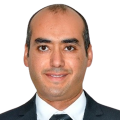
Mr. Tamer Sayed is the manager for radio spectrum assignment in the Egyptian National Telecommunication Regulatory Authority (NTRA). He joined NTRA since 2006, from 2012 he started participating in the activities of ITU-R as a member of the Egyptian delegation to the World Radiocommunication Conferences (WRC-15) and (WRC-19).
Mr. Tamer represented Egypt on the ITU-R working parties for around 10 years, served as the chair of Arab Spectrum Management Group (ASMG) WG 3 during WRC-19 study period. As an ITU Expert, he conducted a Workshop on Spectrum Management Strategic Planning and Policies for Wireless Innovation in Algeria on December 2019.
He also is responsible for adopting the NTRA spectrum assignment database. In addition to that, Mr. Tamer proposed new initiatives for achieving more efficiency in the utilization of some frequency bands and managed the implementation successfully.
Mr. Tamer earned a bachelor degree in telecommunications and electronics engineering from Monofiya University in 2004, and a Diploma degree in Computer Networks in 2006.

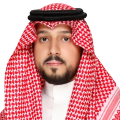
Fahad Alghamdi is an accomplished expert in satellite regulations and space services, with extensive experience in international frequency coordination and spectrum management. As Satellite expert at the Communications, Space, and Technology Commission (CST), Fahad plays a pivotal role in shaping satellite policy and ensuring regulatory compliance for national and international satellite initiatives. He is the Chairman of multiple strategic groups, including the Radiocommunication Advisory Group Correspondence Group (CG) in the ITU-R and the Arab Spectrum Management Group’s Working Group on Mobile Satellite Services.


Ross is a long-term special adviser to the GSMA on government affairs across a number of issues affecting mobile broadband growth. He fulfils this role through his consultancy business RB Communications. Prior to this Ross worked at Access Partnership where he served as a director charged with government affairs and as a financial analyst for the mobile and satellite industries at TelecomFinance.


Eiman Mohyeldin is the global Head of Spectrum Standardisation for Nokia, responsible for defining and executing Nokia’s spectrum strategy and leading Nokia’s engagement on spectrum matters with customers, regulators, authorities, and partners in the ecosystem worldwide. She is actively involved in the World Radio Conference (WRC) process, participating in the WRC conferences and preparatory meetings (CPM). Eiman has also contributed to and led groups for the IMT technology process (4G, 5G, and recently 6G) in ITU and CEPT. Eiman is Co-Coordinator in CEPT NOW4WRC23 promoting gender equity and parity in CEPT and ITU.


Peng is the Vice President of Policy & Regulatory at GSOA, where he leads advocacy efforts around spectrum management, licencing, and national policy initiatives. With experience in telecoms, mobile, and satellites, he has advised governments and industry players globally. Previously at Eutelsat OneWeb, Peng shaped licencing frameworks for Low Earth Orbit constellations and satellite regulatory procedures for WRC-23. At GSMA, he ran a global campaign to improve spectrum licensing conditions for mobile operators, leading a global team of policy expert to engage with policymakers across developing markets. Peng holds a Master’s in Telecommunication from the Swiss Federal Institute of Technology and an Executive MBA from London Business School. He speaks English, Mandarin, and French fluently.

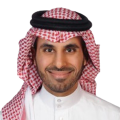

Efforts are well underway in many countries across the MENA region to plan for the next generation of connectivity. Focus is continuing on the expansion of 5G advanced and 5G standalone, and regulators are also looking further forward to the future rollout of 6G services, and evaluating options for the key frequency bands that will serve as the foundation for these advancements. This session will look at some of the different roadmaps that are emerging, and the key spectrum bands that are set to play a part in delivering the next generation of connectivity. By considering the technical requirements for 6G spectrum, potential applications and enabling technologies, and the regulatory frameworks for spectrum allocation in the region, the session will look to identify the most effective strategies to ensure that the Arab region is at the forefront of developments as we move towards 6G.

More information available shortly.


Khalid Al Awadi is the Manager of space services in the Telecommunications Regulatory Authority of the UAE (TRA), where he is responsible for regulating spectrum use, developing, and protecting space services in the UAE.
Khalid is the Chairman of the Conference Preparatory Meeting for WRC-19 (CPM19). He was the Chairman of Committee 5 at WRC-15, and was the Chapter Rapporteur for Chapter 5 “Satellite Regulatory Issues” of the CPM15 report. He is the chairman of the Arab Space Services Group in the Arab Spectrum Management Group (ASMG) since 2012. Also, he leads the UAE in ITU meetings on space radio services and in Administration-level satellite coordination meetings.
Khalid obtained his Masters of Science (MSc) degree in Modern Digital and Radio Frequency Wireless Communications from the University of Leeds in the UK in 2004, and Bachelor of Science (BSc) in Electrical and Electronic Engineering from the American University of Sharjah in 2003.


After a state exam in law at the University of Osnabrück, Mr Kühn has been working since 1998 in the area of legal internship (e.g. at Regional Court) of the Federal Network Agency Germany; changing to National and International Spectrum Regulation on different levels in 2005. Nowadays, he is the Deputy Head of Section for International Affairs and Utilization Concepts. His responsibilities cover strategic frequency utilization concepts and the transposition of those to the international level of CEPT, EU and ITU. Doing this and having been active in the preparation of three WRC’s, on national and on CEPT CPG level, Mr Kühn participated in a number of international Groups, also as Head of the German Delegation. He has also chaired several groups and subgroups in the ITU and CEPT. Since 2005, he has been responsible for the German preparation of the WRC’s and served as CEPT CPG Vice Chairman from 2010 to 2013. Mr Kühn was appointed Chairman of CPG in June 2013.

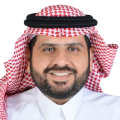
Ayman Maghrabi is the General Manager for Spectrum Assignment at the Saudi Communication, Space and Technology Commission (CST), which is the spectrum regulator in the Kingdom of Saudi Arabia. He received his bachelor’s degree in electrical engineering and a master’s degree in engineering management from King Fahd University of Petroleum and Minerals (KFUPM), and a master’s degree in telecommunications engineering from The University of Sydney.
In his role, Ayman oversees all frequency assignments in the Kingdom and leads initiatives on a national level for releasing commercial spectrum. He has lead three major spectrum releases which include: Non-Terrestrial Networks auction in the 2100 MHz band, IMT auction for (600, 700, 3800) MHz bands, and the award for a national specialized radio network in the 450 MHz band. He is also the head of the National Saudi Team preparing for WRC-27, ensuring national alignment on several Agenda Items and reflecting those position on a regional and international level. He is also appointed as a Vice-Chair for ITU-R Study Group 5 for the current WRC cycle.
Prior to his role in CST, Ayman has worked for more than 7 years in on mission-critical communications as well as other wireless systems such as Smart City telecom planning and radars.

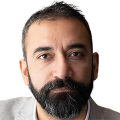
Ali Cheema has two decades of experience working in ICT policy advocacy, technology standardization, mobile broadband networks, and radio spectrum harmonization with the aim to facilitate cost-effective connectivity.
Cheema is motivated by a strong belief in the catalytic role of mobile broadband for socioeconomic progress in a country, he currently leads a team of experts to drive Ericsson’s ICT policy advocacy efforts across the Middle East and Africa in his role as the Head of Government and Industry Relations at Ericsson MEA.



More information available shortly.
Satellite connectivity continues to be a critical enabler in the MENA region, particularly for reaching remote and underserved areas. With the rapid rise of NGSO constellations and emerging technologies like ESIMs, new opportunities are emerging to deliver faster, more reliable services across sectors including education, healthcare, and disaster response. At the same time, these developments raise new regulatory questions. This session will explore how MENA countries are adapting spectrum frameworks to support satellite innovation while ensuring fair access, managing interference, and encouraging regional harmonisation.

In ITU for 17 years, At present: Head of the Broadcasting Services Division at the Radiocommunication Bureau of ITU.
ITU-R activities
Secretary for WG6B responsible for a.i.10 (future Conferences) at WRC-19, WG5C responsible for fixe, mobile and broadcasting issues at WRC-12 and Appendix-4 revision at WRC-07
Counselor by interim to ITU-R study Group 6 and its Working Parties In 2018, in parallel to her responsibilities, from February to September 2018.
Vice Chair of RRC-06 IPG, representing Arab countries (from 2004 to end 2005)
Regional broadcasting planning:
From 2010 and 2018, successfully led DTT frequency planning in Africa, Arab Region and Central America and Caribbean, to facilitate the Transition to DTT and enable the release of 700/800 MHz bands in those Regions.
From 2019 to 2021, led the GE84 Plan optimization for Africa to enable more FM frequencies to respond to the increasing demand in FM radio or to transit to Digital radio.
Other responsibilities:
Vice-president of the ITU appeal Board,
Interim to the BR Deputy Director in the ITU Appointment and Promotion Board,
One of the 3 Secretaries of ITU NOW4WRC23.
Prior to ITU:
worked for near 10 years in Moroccan Agence Nationale de Réglemenation des telecommunications, with evolving level of responsibility that included Project manager for an automated frequency management System, head of national frequency planning and head of international frequency coordination Units.
In addition to her Engineering degree, she completed an executive Master in Business Administration, in Ecole polytechnique Federale de Lausanne-Switzerland in 2009.


More information available shortly.

More information available shortly.

Mostafa Mousa leads regulatory affairs and licensing for Amazon’s Project Kuiper in EMEA region with a focus in Middle East and African Countries. he works with policymakers and stakeholders across EMEA to shape the regulatory requirement for NGSO systems and to secure approvals for Amazon’s satellite broadband network, Kuiper.
Mostafa previously appointed as Director for Space Service Department at National Telecommunication Regulatory Authority of Egypt (NTRA), Mr. Mousa had managed the deployment and technical international radio spectrum coordination tasks of Egyptian satellite networks, including NILESAT and TIBA-1 in geostationary orbit and NARSSCUBE, E-STAR-A and EG-EX-1 in the Non-Geostationary orbits.
On the international level, he worked on developing adequate regulations and procedures to enhance the International Radio Regulations that governs Radio Spectrum issues worldwide, through active participation and contribution to the international Telecommunication Union (ITU) and relevant Study Groups regarding Radio resources management and associated orbits.
Mr. Mousa now is serving as Vice chairman of EXPERT GROUP ON DECISION 482 in ITU and the Rapporteur for satellite service regulatory topics for the preparation to the next World Radiocmmunication Conference in 2027 (WRC-27).

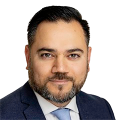

While some countries in the Arab region are leading the way globally in the rollout of 5G and the planning of future technologies such as 6G, others are still in the early stages of their digital transformation. This variation in technological readiness, paired with overlapping frequency demands and, in some cases, fragmented band plans, makes regional coordination both more complex and more vital. Ensuring that no country is left behind will be essential to bridging the connectivity gap and achieving widespread digital inclusion across the region. This session will explore the current landscape of 5G and next-generation technology adoption across the Arab world, and examine how greater alignment in areas such as spectrum licensing, pricing, and long-term planning can accelerate progress. It will look at how a more unified regional approach can support investment, spur innovation, and enable efficient, affordable rollout, particularly in markets facing economic or infrastructural constraints. Ultimately, the discussion will focus on how enhanced collaboration can help close digital divides and deliver on the region’s broader digital ambitions.

Soren Tang Sorensen is a London-based economist with more than 15 years of experience advising clients on auction design and bidding strategy in auctions. He has extensive experience with spectrum auctions, having advised clients on spectrum auctions in more than 40 countries in Europe, Asia, the Middle East, and North America. Dr. Sorensen helps his clients with auction design and implementation and provides advice on bidding strategies for mobile network operators. He frequently provides on-site strategy support during live auctions, and he has experience with all common auction formats for spectrum auctions, including Combinatorial Clock Auction (CCA), Combinatorial Multiple Round Auction (CMRA), Simultaneous Multiple Round Auction (SMRA), Clock Auction (CA), First/Second Price Sealed Bid Auction (FPSB/SPSB), and various hybrid auction formats.


Dr. Mohamed El-Moghazi is the Executive Director of International Spectrum Affairs at the NTRA of Egypt, and Chairman of ATU Spectrum Recommendation Task Group. He is the founder of the Global Telecom Policy Researchers Network (GTPRN), a non-profit initiative for researchers in the field of telecommunications policy. He has recently published the book “The International Radio Regulations”, and the book chapters “Towards a Future- Proof International Spectrum Management Policy”, and “Covid-19 Impact on Spectrum Use and Management”. Currently, he is focusing on development of the satellite industry in Egypt and 6G vision at the ITU in addition to spectrum management support to the African countries.


Telecommunication Engineer, Ms. Sana SOUAI LAKHAL has over 18 years of experience in the field of frequency regulation. She began her career in technical spectrum monitoring before being appointed Head of the Network Development Service in 2016. Since 2023, she has been serving as Director of Frequency Planning and Technology Watch.




Ross is a long-term special adviser to the GSMA on government affairs across a number of issues affecting mobile broadband growth. He fulfils this role through his consultancy business RB Communications. Prior to this Ross worked at Access Partnership where he served as a director charged with government affairs and as a financial analyst for the mobile and satellite industries at TelecomFinance.


Nada Abdelhafez is Head of Spectrum and Regulatory Affairs for the Middle East and Africa at Shure Inc. In her role, she educates and promotes the spectrum needs of the PMSE industry in the MEA region. She influences regulations, ensures access to spectrum, advocates spectrum policy, and promotes new technologies for audio PMSE. Nada works closely with administrations, regulatory authorities, and policymakers to enable PMSE in the MEA.
Before joining Shure, Nada worked for Etisalat UAE, where she was involved in various activities related to spectrum management, technology standardization, and technology regulatory support.
Nada holds a Master’s degree in Electrical Engineering and has several publications related to optimization and deep learning in audio and video streaming.

With the 6 GHz band continuing to play a critical role in enabling next-generation connectivity, administrations across the region are facing complex decisions about its future use. The lower portion (5925–6425 MHz) has already been made available for unlicensed use in many countries, while
WRC-23 saw the upper portion (6425–7125 MHz) identified for IMT – accompanied by a footnote acknowledging ongoing use by wireless access systems, such as Wi-Fi. The focus has now turned to developing regulatory frameworks that can unlock the full potential of this vital spectrum. This session will examine how the entire 6 GHz band can be managed to drive innovation, close connectivity gaps, and support national digital strategies. It will explore how to strike the right balance between licensedand unlicensed use; and assess the current state of device and infrastructure readiness, regional adoption trends, and how today’s policy decisions will shape the market landscape in the years ahead.

Razvan has extensive experience in the TMT sector, including supporting mobile operators with network and spectrum strategies, conducting due diligence for potential telecom acquisitions, and developing innovative business plans for the deployment of 5G networks. Razvan has advised numerous operators on spectrum issues, particularly in developing spectrum strategies and valuing spectrum ahead of auctions. He has also supported operators in preparing for and bidding in spectrum auctions worldwide. Razvan’s current work focuses on the economic benefits and costs of introducing dynamic spectrum allocation in the UK. Razvan also has an M.Eng from the University of Cambridge, specialising in Manufacturing Engineering and Management.

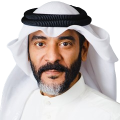


Mr. Tamer Sayed is the manager for radio spectrum assignment in the Egyptian National Telecommunication Regulatory Authority (NTRA). He joined NTRA since 2006, from 2012 he started participating in the activities of ITU-R as a member of the Egyptian delegation to the World Radiocommunication Conferences (WRC-15) and (WRC-19).
Mr. Tamer represented Egypt on the ITU-R working parties for around 10 years, served as the chair of Arab Spectrum Management Group (ASMG) WG 3 during WRC-19 study period. As an ITU Expert, he conducted a Workshop on Spectrum Management Strategic Planning and Policies for Wireless Innovation in Algeria on December 2019.
He also is responsible for adopting the NTRA spectrum assignment database. In addition to that, Mr. Tamer proposed new initiatives for achieving more efficiency in the utilization of some frequency bands and managed the implementation successfully.
Mr. Tamer earned a bachelor degree in telecommunications and electronics engineering from Monofiya University in 2004, and a Diploma degree in Computer Networks in 2006.


Ali Cheema has two decades of experience working in ICT policy advocacy, technology standardization, mobile broadband networks, and radio spectrum harmonization with the aim to facilitate cost effective connectivity.
Cheema is motivated by a strong belief in the catalytic role of mobile broadband for socioeconomic progress in a country, he currently leads a team of experts to drive Ericsson’s ICT policy advocacy efforts across Middle East and Africa in his role as the Head of Government and Industry Relations at Ericsson MEA.


More information available shortly.

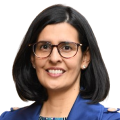
Martha Suarez was born in Bucaramanga, Colombia. She received her degree as Electronics Engineer from the Universidad Industrial de Santander in 2004. During her undergraduate studies, she participated in an exchange program with the Ecole Superieure Chimie Physique Electronique de Lyon, France, in 2001. She received her master’s degree in high frequency communication systems from the University of Marne-la-Vallee, France, in 2006 and her Ph.D. degree from the University Paris-Est in 2009. She joined the department of Telecommunications and Signal Processing at the École Supérieure d’Ingénieurs en Électronique et Électrotechnique de Paris ESIEE and the Esycom Research Center, where she worked on wireless transmitter architectures. In 2011, she was awarded with a Marie Curie Fellowship and worked at the Instytut Technologii Elektronowej ITE in Poland for the Partnership for Cognitive Radio (Par4CR) European Project. Her research interests were in the areas of wireless system architectures and the design of high performance Radio Frequency (RF) transceivers.
In 2013, she joined the National Spectrum Agency in Colombia, ANE, where she worked as Senior Adviser to the General Director and supported the international activities of the Agency. Afterwards, in December 2015, she became the General Director of ANE and continued promoting the efficient use of the Spectrum and the mobile broadband connectivity in Colombia.
Since the 1st of May 2019, Martha Suarez has been the President of the Dynamic Spectrum Alliance DSA, a global organization advocating for laws and regulations that will lead to more efficient and effective spectrum utilization, which is essential to addressing key worldwide social and economic challenges.



With rapid technological progress already underway and further innovation on the horizon, the integration of Artificial Intelligence (AI) into spectrum policy and management is no longer a distant concept—it is becoming a concrete area of exploration for regulators and stakeholders worldwide. Reflecting this momentum, a dedicated GCC Working Group has recently been established to investigate how AI can enhance decision-making, boost spectrum efficiency, and streamline traditionally manual regulatory processes. From intelligent spectrum sensing and predictive analytics to dynamic spectrum allocation and real-time interference resolution, AI is beginning to reshape the conventional approach to spectrum management. This session will explore how AI can evolve and support the role of the spectrum manager, enable new forms of automated licensing with limited human intervention, and assess the opportunities, challenges, and preparedness for AI-powered tools to transform the spectrum governance landscape across the MENA region and beyond.


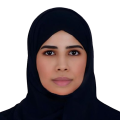
Khuloud Al Hamedi is a spectrum allocation engineer at the Telecommunications and Digital Government Regulatory Authority (TDRA), where she focuses on managing the spectrum through planning, coordination, and technical analysis to ensure efficient and reliable spectrum use.
She holds a Bachelor’s degree in Communication Engineering from Khalifa University and is pursuing a Master’s in Information Systems Management at Zayed University, with a focus on artificial intelligence (AI), IoT, and digital transformation. Khuloud is passionate about exploring how AI and emerging technologies can optimize spectrum use and drive the future of digital connectivity and she is currently leading the AI-related initiatives within the Spectrum Affairs department at TDRA.

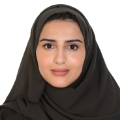
Sultanah AlDossary a Senior Analyst at CST with a background in AI and Data. Passionate about exploring the application of AI in Radio Spectrum Management, a niche domain with significant potential for innovation and advancements.


Dr.-Ing. Andreas Wilzeck is Head of Spectrum Policy and Standards at Sennheiser electronic GmbH & Co. KG, Germany.
He is Vice-Chair of the ETSI TC DECT, was Chair of the ETSI Evaluation Group for IMT-2020 and is an active participant in the standardisation work of various ETSI technical committees. He also participates in WRC, ITU-R, CEPT and other PMSE-related spectrum regulatory work globally.
He received the Dr.-Ing. degree from the Faculty of Electrical Engineering and Computer Science at Gottfried Wilhelm Leibniz Universität Hannover in August 2009.

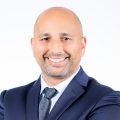
Mérouane Debbah is Professor at Khalifa University of Science and Technology in Abu Dhabi and founding Director of the KU 6G Research Center. He is a frequent keynote speaker at international events in the field of telecommunication and AI. His research has been lying at the interface of fundamental mathematics, algorithms, statistics, information and communication sciences with a special focus on random matrix theory and learning algorithms. In the Communication field, he has been at the heart of the development of small cells (4G), Massive MIMO (5G) and Large Intelligent Surfaces (6G) technologies. In the AI field, he is known for his work on Large Language Models, distributed AI systems for networks and semantic communications. He received multiple prestigious distinctions, prizes and best paper awards (more than 50 IEEE best paper awards) for his contributions to both fields and according to research.com is ranked as the best scientist in France in the field of Electronics and Electrical Engineering. He is an IEEE Fellow, a WWRF Fellow, a Eurasip Fellow, an AAIA Fellow, an Institut Louis Bachelier Fellow, an AIIA Fellow and a Membre émérite SEE. His recent work led to the development of NOOR (upon it release, largest language model in Arabic) released in 2022, Falcon LLM (upon its release, top ranked open source large language model) released in 2023 and the Falcon Foundation in 2024. The Falcon Model Series and The Falcon Foundation have positioned the UAE as a global leader in the generative AI field. He is actually chair of the IEEE Large Generative AI Models in Telecom (GenAINet) Emerging Technology Initiative and a member of the Marconi Prize Selection Advisory Committee.

As Direct-to-Device (D2D) connectivity gains traction as a transformative element in the satellite and NTN ecosystem, strategies are starting to emerge in regions around the world for the best way to meet the challenges of spectrum allocation, coexistence with incumbent services, and fostering innovation in D2D technologies. This session will look at the different way in which regions around the world are approaching the development of D2D technologies and the regulatory frameworks needed to support them. By delving into regulatory frameworks and measures designed to balance innovation with the protection of existing users, the panel aims to identify actionable insights that can support the growth of D2D connectivity and its integration into broader connectivity frameworks.

More information available shortly.


More information available shortly.

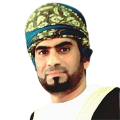
More information available shortly.


Eric Fournier is currently Director for Spectrum Planning and International Affairs in the Agence Nationale des Fréquences (ANFR), the French public agency in charge of spectrum management (www.anfr.fr).
In this capacity, he is responsible for preparing the revisions of the French national table of spectrum allocation and for coordinating French positions in international meetings and conferences on spectrum within ITU, CEPT and EU. He was deputy head of the French delegation for RRC-06, WRC-07, WRC-12, WRC-15, WRC-19 and WRC-23. He was chairman of the RSPG, a high-level advisory group that assists the European Commission in the development of radio spectrum policy, for the cycle 2022-23. He has been involved in all discussions on major evolutions of spectrum in Europe and was Chairman of the Electronic Communication Committee (CEPT/ECC) from 2013 to 2018 and of the European Conference Preparatory Group for the World Radiocommunications Conference 2012 (CPG-12). Eric is a graduate telecom engineer from SUPELEC (France).


Ross is a long-term special adviser to the GSMA on government affairs across a number of issues affecting mobile broadband growth. He fulfils this role through his consultancy business RB Communications. Prior to this Ross worked at Access Partnership where he served as a director charged with government affairs and as a financial analyst for the mobile and satellite industries at TelecomFinance.


Ismael Moreno-Gomez is a Manager at Analysys Mason based in Dubai. Ismael has helped players in the telecoms industry on a variety of topics, including spectrum valuation and spectrum strategy, by applying customised quantitative modelling techniques. Ismael’s expertise lies in applying quantitative modelling to a wide range of issues within the telecoms industry, with a specific focus on supporting mobile network operators in preparation for major spectrum awards. This support typically covers spectrum strategy, network strategy, spectrum valuation, competitor assessment and bid strategy. He has also helped industry players in preparation for potential transactions, including in support of mergers between mobile network operators and acquisition/sale of digital infrastructure (towers, fibre, data centres, etc.)
Ismael holds a Ph.D. in Materials Science and Metallurgy from the University of Cambridge (UK), in addition to M.Eng. degrees in Industrial Engineering and Materials Engineering from the University of Navarra (Spain). Prior to joining Analysys Mason, Ismael worked for Aetha Consulting, a boutique telecoms firm based in Cambridge (UK) and undertook doctoral research at the University of Cambridge (UK).



Spectrum and connectivity form the foundation of mission-critical communications—powering emergency response systems, public safety networks, smart grids, and industrial operations. Increasingly, they are also key enablers of enterprise digital transformation, with businesses across sectors relying on tailored, ultra-reliable connectivity to support automation, real-time decision-making, and secure data exchange. A flexible and forward-looking spectrum framework is essential to meet the diverse and evolving needs of these verticals. This session will explore how regulatory strategies can support a resilient and responsive connectivity ecosystem that serves both public and private sector needs. It will address questions around spectrum allocation, access models, and the role of private networks in delivering secure, localized enterprise connectivity. Discussions will highlight how regulators and industry stakeholders can collaborate to optimize the use of spectrum for mission-critical and enterprise-grade use cases—leveraging best practices from within and beyond the MENA region, while supporting innovation across industrial, commercial, and public domains.

Ismael Moreno-Gomez is a Manager at Analysys Mason based in Dubai. Ismael has helped players in the telecoms industry on a variety of topics, including spectrum valuation and spectrum strategy, by applying customised quantitative modelling techniques. Ismael’s expertise lies in applying quantitative modelling to a wide range of issues within the telecoms industry, with a specific focus on supporting mobile network operators in preparation for major spectrum awards. This support typically covers spectrum strategy, network strategy, spectrum valuation, competitor assessment and bid strategy. He has also helped industry players in preparation for potential transactions, including in support of mergers between mobile network operators and acquisition/sale of digital infrastructure (towers, fibre, data centres, etc.)
Ismael holds a Ph.D. in Materials Science and Metallurgy from the University of Cambridge (UK), in addition to M.Eng. degrees in Industrial Engineering and Materials Engineering from the University of Navarra (Spain). Prior to joining Analysys Mason, Ismael worked for Aetha Consulting, a boutique telecoms firm based in Cambridge (UK) and undertook doctoral research at the University of Cambridge (UK).


More information available shortly.

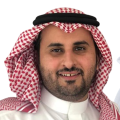
Mohammad Alabdulqader is an experienced spectrum manager for more than 12 years. He has been involved in many national and international spectrum management activities. He was the head of technical and spectrum regulations at Mobily. Mohammed has held various leadership roles in CITC, and he is currently the General Manager of Spectrum Monitoring in CITC. Now, he is the Chairman of the Gulf Cooperation Council Working group responsible for WRC’s preparation.
Mohammed received the BSc and MSc in Electrical Engineering from King Saud University.

More information available shortly.

Eiman Mohyeldin is the global Head of Spectrum Standardisation for Nokia, responsible for defining and executing Nokia’s spectrum strategy and leading Nokia’s engagement on spectrum matters with customers, regulators, authorities, and partners in the ecosystem worldwide. She is actively involved in the World Radio Conference (WRC) process, participating in the WRC conferences and preparatory meetings (CPM). Eiman has also contributed to and led groups for the IMT technology process (4G, 5G, and recently 6G) in ITU and CEPT. Eiman is Co-Coordinator in CEPT NOW4WRC23 promoting gender equity and parity in CEPT and ITU.

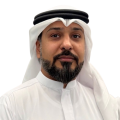
Feher Abdulla Al Mazam is a seasoned leader in digital infrastructure, currently serving as Vice President of Group Digital Connectivity Infrastructure at ADNOC. With extensive experience in managing large-scale digital transformation initiatives, Feher has led cross-functional teams to deliver strategic connectivity solutions that enhance operational efficiency and resilience across the organization.
Feher specializes in digital connectivity infrastructure, with a strong focus on network architecture, telecommunications strategy, and transformation projects that align with ADNOC’s long-term digital vision.


In ITU for 17 years, At present: Head of the Broadcasting Services Division at the Radiocommunication Bureau of ITU.
ITU-R activities
Secretary for WG6B responsible for a.i.10 (future Conferences) at WRC-19, WG5C responsible for fixe, mobile and broadcasting issues at WRC-12 and Appendix-4 revision at WRC-07
Counselor by interim to ITU-R study Group 6 and its Working Parties In 2018, in parallel to her responsibilities, from February to September 2018.
Vice Chair of RRC-06 IPG, representing Arab countries (from 2004 to end 2005)
Regional broadcasting planning:
From 2010 and 2018, successfully led DTT frequency planning in Africa, Arab Region and Central America and Caribbean, to facilitate the Transition to DTT and enable the release of 700/800 MHz bands in those Regions.
From 2019 to 2021, led the GE84 Plan optimization for Africa to enable more FM frequencies to respond to the increasing demand in FM radio or to transit to Digital radio.
Other responsibilities:
Vice-president of the ITU appeal Board,
Interim to the BR Deputy Director in the ITU Appointment and Promotion Board,
One of the 3 Secretaries of ITU NOW4WRC23.
Prior to ITU:
worked for near 10 years in Moroccan Agence Nationale de Réglemenation des telecommunications, with evolving level of responsibility that included Project manager for an automated frequency management System, head of national frequency planning and head of international frequency coordination Units.
In addition to her Engineering degree, she completed an executive Master in Business Administration, in Ecole polytechnique Federale de Lausanne-Switzerland in 2009.


Tareq Al Awadhi is the Chairman of the ASMG and the Executive Director of the Spectrum Affairs Department of the Telecommunications and Digital Government Regulatory Authority (TDRA) in the United Arab Emirates. Mr. Al Awadhi has 27 years of experience in spectrum management. He is Chairman of Arab Spectrum Management Group (ASMG) and he has been selected as Chairman of ITU World Radiocommunications Conference (WRC) 2012. He is also Chairman of Arab Working Group for PP-22 Preparation. He headed a number of ITU Working Groups and meetings and contributed towards ITU resolutions, recommendations and studies. He represented the UAE in ITU, IMO, ICAO, Arab League, GCC Telecom Bureau and a number of other international and regional forums.
Achievements:
Tareq Al Awadhi played a pivotal role in establishing Spectrum Affairs Department in the TDRA. He pioneered the modern spectrum management concepts in the region and equipped the UAE with one the most advanced and first of its kind fully automated online spectrum management and frequency planning system. He developed UAE 5G Strategic Plan and Beyond (2020-2025) and the UAE ranked 4th Globally in launching and operating the 5G in 2020. This plan serves as a road map to accelerate the pace of introducing the 5G in the country and work with all partners in using this Technology in all sectors in the country (such as health, education, entertainment, infrastructure, military, security, etc.).
He has long experience in satellite coordination business. Under his supervisor; the UAE Administration managed to register their 11 satellites in the ITU Master Frequency Registration for the purpose of it protection, and around 138 files were opened covering a large number of satellite orbital under UAE name.

The next plenary meeting of the ASMG is scheduled to take place immediately following this conference, to discuss latest progress and next steps in regional preparation for WRC-27. Ahead of this, and with WRC-27 now only just over 2 years away, this session will provide an opportunity to take stock of the progress made so far, and early indications of positions on critical agenda items that are emerging. By examining regional and global trends, potential challenges, and areas for greater coordination, it will look to will set the scene for the discussions later this week and the broader continuation of regional preparatory work that is taking place. Ultimately, it will look to provide insights into the best way forward to deliver a cohesive and effective strategy for WRC-27 and ensure a successful outcome for the region.



Mr. Tamer Sayed is the manager for radio spectrum assignment in the Egyptian National Telecommunication Regulatory Authority (NTRA). He joined NTRA since 2006, from 2012 he started participating in the activities of ITU-R as a member of the Egyptian delegation to the World Radiocommunication Conferences (WRC-15) and (WRC-19).
Mr. Tamer represented Egypt on the ITU-R working parties for around 10 years, served as the chair of Arab Spectrum Management Group (ASMG) WG 3 during WRC-19 study period. As an ITU Expert, he conducted a Workshop on Spectrum Management Strategic Planning and Policies for Wireless Innovation in Algeria on December 2019.
He also is responsible for adopting the NTRA spectrum assignment database. In addition to that, Mr. Tamer proposed new initiatives for achieving more efficiency in the utilization of some frequency bands and managed the implementation successfully.
Mr. Tamer earned a bachelor degree in telecommunications and electronics engineering from Monofiya University in 2004, and a Diploma degree in Computer Networks in 2006.


Fahad Alghamdi is an accomplished expert in satellite regulations and space services, with extensive experience in international frequency coordination and spectrum management. As Satellite expert at the Communications, Space, and Technology Commission (CST), Fahad plays a pivotal role in shaping satellite policy and ensuring regulatory compliance for national and international satellite initiatives. He is the Chairman of multiple strategic groups, including the Radiocommunication Advisory Group Correspondence Group (CG) in the ITU-R and the Arab Spectrum Management Group’s Working Group on Mobile Satellite Services.


Ross is a long-term special adviser to the GSMA on government affairs across a number of issues affecting mobile broadband growth. He fulfils this role through his consultancy business RB Communications. Prior to this Ross worked at Access Partnership where he served as a director charged with government affairs and as a financial analyst for the mobile and satellite industries at TelecomFinance.


Eiman Mohyeldin is the global Head of Spectrum Standardisation for Nokia, responsible for defining and executing Nokia’s spectrum strategy and leading Nokia’s engagement on spectrum matters with customers, regulators, authorities, and partners in the ecosystem worldwide. She is actively involved in the World Radio Conference (WRC) process, participating in the WRC conferences and preparatory meetings (CPM). Eiman has also contributed to and led groups for the IMT technology process (4G, 5G, and recently 6G) in ITU and CEPT. Eiman is Co-Coordinator in CEPT NOW4WRC23 promoting gender equity and parity in CEPT and ITU.


Peng is the Vice President of Policy & Regulatory at GSOA, where he leads advocacy efforts around spectrum management, licencing, and national policy initiatives. With experience in telecoms, mobile, and satellites, he has advised governments and industry players globally. Previously at Eutelsat OneWeb, Peng shaped licencing frameworks for Low Earth Orbit constellations and satellite regulatory procedures for WRC-23. At GSMA, he ran a global campaign to improve spectrum licensing conditions for mobile operators, leading a global team of policy expert to engage with policymakers across developing markets. Peng holds a Master’s in Telecommunication from the Swiss Federal Institute of Technology and an Executive MBA from London Business School. He speaks English, Mandarin, and French fluently.



Efforts are well underway in many countries across the MENA region to plan for the next generation of connectivity. Focus is continuing on the expansion of 5G advanced and 5G standalone, and regulators are also looking further forward to the future rollout of 6G services, and evaluating options for the key frequency bands that will serve as the foundation for these advancements. This session will look at some of the different roadmaps that are emerging, and the key spectrum bands that are set to play a part in delivering the next generation of connectivity. By considering the technical requirements for 6G spectrum, potential applications and enabling technologies, and the regulatory frameworks for spectrum allocation in the region, the session will look to identify the most effective strategies to ensure that the Arab region is at the forefront of developments as we move towards 6G.

More information available shortly.


Khalid Al Awadi is the Manager of space services in the Telecommunications Regulatory Authority of the UAE (TRA), where he is responsible for regulating spectrum use, developing, and protecting space services in the UAE.
Khalid is the Chairman of the Conference Preparatory Meeting for WRC-19 (CPM19). He was the Chairman of Committee 5 at WRC-15, and was the Chapter Rapporteur for Chapter 5 “Satellite Regulatory Issues” of the CPM15 report. He is the chairman of the Arab Space Services Group in the Arab Spectrum Management Group (ASMG) since 2012. Also, he leads the UAE in ITU meetings on space radio services and in Administration-level satellite coordination meetings.
Khalid obtained his Masters of Science (MSc) degree in Modern Digital and Radio Frequency Wireless Communications from the University of Leeds in the UK in 2004, and Bachelor of Science (BSc) in Electrical and Electronic Engineering from the American University of Sharjah in 2003.


After a state exam in law at the University of Osnabrück, Mr Kühn has been working since 1998 in the area of legal internship (e.g. at Regional Court) of the Federal Network Agency Germany; changing to National and International Spectrum Regulation on different levels in 2005. Nowadays, he is the Deputy Head of Section for International Affairs and Utilization Concepts. His responsibilities cover strategic frequency utilization concepts and the transposition of those to the international level of CEPT, EU and ITU. Doing this and having been active in the preparation of three WRC’s, on national and on CEPT CPG level, Mr Kühn participated in a number of international Groups, also as Head of the German Delegation. He has also chaired several groups and subgroups in the ITU and CEPT. Since 2005, he has been responsible for the German preparation of the WRC’s and served as CEPT CPG Vice Chairman from 2010 to 2013. Mr Kühn was appointed Chairman of CPG in June 2013.


Ayman Maghrabi is the General Manager for Spectrum Assignment at the Saudi Communication, Space and Technology Commission (CST), which is the spectrum regulator in the Kingdom of Saudi Arabia. He received his bachelor’s degree in electrical engineering and a master’s degree in engineering management from King Fahd University of Petroleum and Minerals (KFUPM), and a master’s degree in telecommunications engineering from The University of Sydney.
In his role, Ayman oversees all frequency assignments in the Kingdom and leads initiatives on a national level for releasing commercial spectrum. He has lead three major spectrum releases which include: Non-Terrestrial Networks auction in the 2100 MHz band, IMT auction for (600, 700, 3800) MHz bands, and the award for a national specialized radio network in the 450 MHz band. He is also the head of the National Saudi Team preparing for WRC-27, ensuring national alignment on several Agenda Items and reflecting those position on a regional and international level. He is also appointed as a Vice-Chair for ITU-R Study Group 5 for the current WRC cycle.
Prior to his role in CST, Ayman has worked for more than 7 years in on mission-critical communications as well as other wireless systems such as Smart City telecom planning and radars.


Ali Cheema has two decades of experience working in ICT policy advocacy, technology standardization, mobile broadband networks, and radio spectrum harmonization with the aim to facilitate cost-effective connectivity.
Cheema is motivated by a strong belief in the catalytic role of mobile broadband for socioeconomic progress in a country, he currently leads a team of experts to drive Ericsson’s ICT policy advocacy efforts across the Middle East and Africa in his role as the Head of Government and Industry Relations at Ericsson MEA.



More information available shortly.
Satellite connectivity continues to be a critical enabler in the MENA region, particularly for reaching remote and underserved areas. With the rapid rise of NGSO constellations and emerging technologies like ESIMs, new opportunities are emerging to deliver faster, more reliable services across sectors including education, healthcare, and disaster response. At the same time, these developments raise new regulatory questions. This session will explore how MENA countries are adapting spectrum frameworks to support satellite innovation while ensuring fair access, managing interference, and encouraging regional harmonisation.

In ITU for 17 years, At present: Head of the Broadcasting Services Division at the Radiocommunication Bureau of ITU.
ITU-R activities
Secretary for WG6B responsible for a.i.10 (future Conferences) at WRC-19, WG5C responsible for fixe, mobile and broadcasting issues at WRC-12 and Appendix-4 revision at WRC-07
Counselor by interim to ITU-R study Group 6 and its Working Parties In 2018, in parallel to her responsibilities, from February to September 2018.
Vice Chair of RRC-06 IPG, representing Arab countries (from 2004 to end 2005)
Regional broadcasting planning:
From 2010 and 2018, successfully led DTT frequency planning in Africa, Arab Region and Central America and Caribbean, to facilitate the Transition to DTT and enable the release of 700/800 MHz bands in those Regions.
From 2019 to 2021, led the GE84 Plan optimization for Africa to enable more FM frequencies to respond to the increasing demand in FM radio or to transit to Digital radio.
Other responsibilities:
Vice-president of the ITU appeal Board,
Interim to the BR Deputy Director in the ITU Appointment and Promotion Board,
One of the 3 Secretaries of ITU NOW4WRC23.
Prior to ITU:
worked for near 10 years in Moroccan Agence Nationale de Réglemenation des telecommunications, with evolving level of responsibility that included Project manager for an automated frequency management System, head of national frequency planning and head of international frequency coordination Units.
In addition to her Engineering degree, she completed an executive Master in Business Administration, in Ecole polytechnique Federale de Lausanne-Switzerland in 2009.


More information available shortly.

More information available shortly.

Mostafa Mousa leads regulatory affairs and licensing for Amazon’s Project Kuiper in EMEA region with a focus in Middle East and African Countries. he works with policymakers and stakeholders across EMEA to shape the regulatory requirement for NGSO systems and to secure approvals for Amazon’s satellite broadband network, Kuiper.
Mostafa previously appointed as Director for Space Service Department at National Telecommunication Regulatory Authority of Egypt (NTRA), Mr. Mousa had managed the deployment and technical international radio spectrum coordination tasks of Egyptian satellite networks, including NILESAT and TIBA-1 in geostationary orbit and NARSSCUBE, E-STAR-A and EG-EX-1 in the Non-Geostationary orbits.
On the international level, he worked on developing adequate regulations and procedures to enhance the International Radio Regulations that governs Radio Spectrum issues worldwide, through active participation and contribution to the international Telecommunication Union (ITU) and relevant Study Groups regarding Radio resources management and associated orbits.
Mr. Mousa now is serving as Vice chairman of EXPERT GROUP ON DECISION 482 in ITU and the Rapporteur for satellite service regulatory topics for the preparation to the next World Radiocmmunication Conference in 2027 (WRC-27).



While some countries in the Arab region are leading the way globally in the rollout of 5G and the planning of future technologies such as 6G, others are still in the early stages of their digital transformation. This variation in technological readiness, paired with overlapping frequency demands and, in some cases, fragmented band plans, makes regional coordination both more complex and more vital. Ensuring that no country is left behind will be essential to bridging the connectivity gap and achieving widespread digital inclusion across the region. This session will explore the current landscape of 5G and next-generation technology adoption across the Arab world, and examine how greater alignment in areas such as spectrum licensing, pricing, and long-term planning can accelerate progress. It will look at how a more unified regional approach can support investment, spur innovation, and enable efficient, affordable rollout, particularly in markets facing economic or infrastructural constraints. Ultimately, the discussion will focus on how enhanced collaboration can help close digital divides and deliver on the region’s broader digital ambitions.

Soren Tang Sorensen is a London-based economist with more than 15 years of experience advising clients on auction design and bidding strategy in auctions. He has extensive experience with spectrum auctions, having advised clients on spectrum auctions in more than 40 countries in Europe, Asia, the Middle East, and North America. Dr. Sorensen helps his clients with auction design and implementation and provides advice on bidding strategies for mobile network operators. He frequently provides on-site strategy support during live auctions, and he has experience with all common auction formats for spectrum auctions, including Combinatorial Clock Auction (CCA), Combinatorial Multiple Round Auction (CMRA), Simultaneous Multiple Round Auction (SMRA), Clock Auction (CA), First/Second Price Sealed Bid Auction (FPSB/SPSB), and various hybrid auction formats.


Dr. Mohamed El-Moghazi is the Executive Director of International Spectrum Affairs at the NTRA of Egypt, and Chairman of ATU Spectrum Recommendation Task Group. He is the founder of the Global Telecom Policy Researchers Network (GTPRN), a non-profit initiative for researchers in the field of telecommunications policy. He has recently published the book “The International Radio Regulations”, and the book chapters “Towards a Future- Proof International Spectrum Management Policy”, and “Covid-19 Impact on Spectrum Use and Management”. Currently, he is focusing on development of the satellite industry in Egypt and 6G vision at the ITU in addition to spectrum management support to the African countries.


Telecommunication Engineer, Ms. Sana SOUAI LAKHAL has over 18 years of experience in the field of frequency regulation. She began her career in technical spectrum monitoring before being appointed Head of the Network Development Service in 2016. Since 2023, she has been serving as Director of Frequency Planning and Technology Watch.




Ross is a long-term special adviser to the GSMA on government affairs across a number of issues affecting mobile broadband growth. He fulfils this role through his consultancy business RB Communications. Prior to this Ross worked at Access Partnership where he served as a director charged with government affairs and as a financial analyst for the mobile and satellite industries at TelecomFinance.


Nada Abdelhafez is Head of Spectrum and Regulatory Affairs for the Middle East and Africa at Shure Inc. In her role, she educates and promotes the spectrum needs of the PMSE industry in the MEA region. She influences regulations, ensures access to spectrum, advocates spectrum policy, and promotes new technologies for audio PMSE. Nada works closely with administrations, regulatory authorities, and policymakers to enable PMSE in the MEA.
Before joining Shure, Nada worked for Etisalat UAE, where she was involved in various activities related to spectrum management, technology standardization, and technology regulatory support.
Nada holds a Master’s degree in Electrical Engineering and has several publications related to optimization and deep learning in audio and video streaming.

With the 6 GHz band continuing to play a critical role in enabling next-generation connectivity, administrations across the region are facing complex decisions about its future use. The lower portion (5925–6425 MHz) has already been made available for unlicensed use in many countries, while
WRC-23 saw the upper portion (6425–7125 MHz) identified for IMT – accompanied by a footnote acknowledging ongoing use by wireless access systems, such as Wi-Fi. The focus has now turned to developing regulatory frameworks that can unlock the full potential of this vital spectrum. This session will examine how the entire 6 GHz band can be managed to drive innovation, close connectivity gaps, and support national digital strategies. It will explore how to strike the right balance between licensedand unlicensed use; and assess the current state of device and infrastructure readiness, regional adoption trends, and how today’s policy decisions will shape the market landscape in the years ahead.

Razvan has extensive experience in the TMT sector, including supporting mobile operators with network and spectrum strategies, conducting due diligence for potential telecom acquisitions, and developing innovative business plans for the deployment of 5G networks. Razvan has advised numerous operators on spectrum issues, particularly in developing spectrum strategies and valuing spectrum ahead of auctions. He has also supported operators in preparing for and bidding in spectrum auctions worldwide. Razvan’s current work focuses on the economic benefits and costs of introducing dynamic spectrum allocation in the UK. Razvan also has an M.Eng from the University of Cambridge, specialising in Manufacturing Engineering and Management.




Mr. Tamer Sayed is the manager for radio spectrum assignment in the Egyptian National Telecommunication Regulatory Authority (NTRA). He joined NTRA since 2006, from 2012 he started participating in the activities of ITU-R as a member of the Egyptian delegation to the World Radiocommunication Conferences (WRC-15) and (WRC-19).
Mr. Tamer represented Egypt on the ITU-R working parties for around 10 years, served as the chair of Arab Spectrum Management Group (ASMG) WG 3 during WRC-19 study period. As an ITU Expert, he conducted a Workshop on Spectrum Management Strategic Planning and Policies for Wireless Innovation in Algeria on December 2019.
He also is responsible for adopting the NTRA spectrum assignment database. In addition to that, Mr. Tamer proposed new initiatives for achieving more efficiency in the utilization of some frequency bands and managed the implementation successfully.
Mr. Tamer earned a bachelor degree in telecommunications and electronics engineering from Monofiya University in 2004, and a Diploma degree in Computer Networks in 2006.


Ali Cheema has two decades of experience working in ICT policy advocacy, technology standardization, mobile broadband networks, and radio spectrum harmonization with the aim to facilitate cost effective connectivity.
Cheema is motivated by a strong belief in the catalytic role of mobile broadband for socioeconomic progress in a country, he currently leads a team of experts to drive Ericsson’s ICT policy advocacy efforts across Middle East and Africa in his role as the Head of Government and Industry Relations at Ericsson MEA.


More information available shortly.


Martha Suarez was born in Bucaramanga, Colombia. She received her degree as Electronics Engineer from the Universidad Industrial de Santander in 2004. During her undergraduate studies, she participated in an exchange program with the Ecole Superieure Chimie Physique Electronique de Lyon, France, in 2001. She received her master’s degree in high frequency communication systems from the University of Marne-la-Vallee, France, in 2006 and her Ph.D. degree from the University Paris-Est in 2009. She joined the department of Telecommunications and Signal Processing at the École Supérieure d’Ingénieurs en Électronique et Électrotechnique de Paris ESIEE and the Esycom Research Center, where she worked on wireless transmitter architectures. In 2011, she was awarded with a Marie Curie Fellowship and worked at the Instytut Technologii Elektronowej ITE in Poland for the Partnership for Cognitive Radio (Par4CR) European Project. Her research interests were in the areas of wireless system architectures and the design of high performance Radio Frequency (RF) transceivers.
In 2013, she joined the National Spectrum Agency in Colombia, ANE, where she worked as Senior Adviser to the General Director and supported the international activities of the Agency. Afterwards, in December 2015, she became the General Director of ANE and continued promoting the efficient use of the Spectrum and the mobile broadband connectivity in Colombia.
Since the 1st of May 2019, Martha Suarez has been the President of the Dynamic Spectrum Alliance DSA, a global organization advocating for laws and regulations that will lead to more efficient and effective spectrum utilization, which is essential to addressing key worldwide social and economic challenges.



With rapid technological progress already underway and further innovation on the horizon, the integration of Artificial Intelligence (AI) into spectrum policy and management is no longer a distant concept—it is becoming a concrete area of exploration for regulators and stakeholders worldwide. Reflecting this momentum, a dedicated GCC Working Group has recently been established to investigate how AI can enhance decision-making, boost spectrum efficiency, and streamline traditionally manual regulatory processes. From intelligent spectrum sensing and predictive analytics to dynamic spectrum allocation and real-time interference resolution, AI is beginning to reshape the conventional approach to spectrum management. This session will explore how AI can evolve and support the role of the spectrum manager, enable new forms of automated licensing with limited human intervention, and assess the opportunities, challenges, and preparedness for AI-powered tools to transform the spectrum governance landscape across the MENA region and beyond.



Khuloud Al Hamedi is a spectrum allocation engineer at the Telecommunications and Digital Government Regulatory Authority (TDRA), where she focuses on managing the spectrum through planning, coordination, and technical analysis to ensure efficient and reliable spectrum use.
She holds a Bachelor’s degree in Communication Engineering from Khalifa University and is pursuing a Master’s in Information Systems Management at Zayed University, with a focus on artificial intelligence (AI), IoT, and digital transformation. Khuloud is passionate about exploring how AI and emerging technologies can optimize spectrum use and drive the future of digital connectivity and she is currently leading the AI-related initiatives within the Spectrum Affairs department at TDRA.


Sultanah AlDossary a Senior Analyst at CST with a background in AI and Data. Passionate about exploring the application of AI in Radio Spectrum Management, a niche domain with significant potential for innovation and advancements.


Dr.-Ing. Andreas Wilzeck is Head of Spectrum Policy and Standards at Sennheiser electronic GmbH & Co. KG, Germany.
He is Vice-Chair of the ETSI TC DECT, was Chair of the ETSI Evaluation Group for IMT-2020 and is an active participant in the standardisation work of various ETSI technical committees. He also participates in WRC, ITU-R, CEPT and other PMSE-related spectrum regulatory work globally.
He received the Dr.-Ing. degree from the Faculty of Electrical Engineering and Computer Science at Gottfried Wilhelm Leibniz Universität Hannover in August 2009.


Mérouane Debbah is Professor at Khalifa University of Science and Technology in Abu Dhabi and founding Director of the KU 6G Research Center. He is a frequent keynote speaker at international events in the field of telecommunication and AI. His research has been lying at the interface of fundamental mathematics, algorithms, statistics, information and communication sciences with a special focus on random matrix theory and learning algorithms. In the Communication field, he has been at the heart of the development of small cells (4G), Massive MIMO (5G) and Large Intelligent Surfaces (6G) technologies. In the AI field, he is known for his work on Large Language Models, distributed AI systems for networks and semantic communications. He received multiple prestigious distinctions, prizes and best paper awards (more than 50 IEEE best paper awards) for his contributions to both fields and according to research.com is ranked as the best scientist in France in the field of Electronics and Electrical Engineering. He is an IEEE Fellow, a WWRF Fellow, a Eurasip Fellow, an AAIA Fellow, an Institut Louis Bachelier Fellow, an AIIA Fellow and a Membre émérite SEE. His recent work led to the development of NOOR (upon it release, largest language model in Arabic) released in 2022, Falcon LLM (upon its release, top ranked open source large language model) released in 2023 and the Falcon Foundation in 2024. The Falcon Model Series and The Falcon Foundation have positioned the UAE as a global leader in the generative AI field. He is actually chair of the IEEE Large Generative AI Models in Telecom (GenAINet) Emerging Technology Initiative and a member of the Marconi Prize Selection Advisory Committee.

As Direct-to-Device (D2D) connectivity gains traction as a transformative element in the satellite and NTN ecosystem, strategies are starting to emerge in regions around the world for the best way to meet the challenges of spectrum allocation, coexistence with incumbent services, and fostering innovation in D2D technologies. This session will look at the different way in which regions around the world are approaching the development of D2D technologies and the regulatory frameworks needed to support them. By delving into regulatory frameworks and measures designed to balance innovation with the protection of existing users, the panel aims to identify actionable insights that can support the growth of D2D connectivity and its integration into broader connectivity frameworks.

More information available shortly.


More information available shortly.


More information available shortly.


Eric Fournier is currently Director for Spectrum Planning and International Affairs in the Agence Nationale des Fréquences (ANFR), the French public agency in charge of spectrum management (www.anfr.fr).
In this capacity, he is responsible for preparing the revisions of the French national table of spectrum allocation and for coordinating French positions in international meetings and conferences on spectrum within ITU, CEPT and EU. He was deputy head of the French delegation for RRC-06, WRC-07, WRC-12, WRC-15, WRC-19 and WRC-23. He was chairman of the RSPG, a high-level advisory group that assists the European Commission in the development of radio spectrum policy, for the cycle 2022-23. He has been involved in all discussions on major evolutions of spectrum in Europe and was Chairman of the Electronic Communication Committee (CEPT/ECC) from 2013 to 2018 and of the European Conference Preparatory Group for the World Radiocommunications Conference 2012 (CPG-12). Eric is a graduate telecom engineer from SUPELEC (France).


Ross is a long-term special adviser to the GSMA on government affairs across a number of issues affecting mobile broadband growth. He fulfils this role through his consultancy business RB Communications. Prior to this Ross worked at Access Partnership where he served as a director charged with government affairs and as a financial analyst for the mobile and satellite industries at TelecomFinance.


Ismael Moreno-Gomez is a Manager at Analysys Mason based in Dubai. Ismael has helped players in the telecoms industry on a variety of topics, including spectrum valuation and spectrum strategy, by applying customised quantitative modelling techniques. Ismael’s expertise lies in applying quantitative modelling to a wide range of issues within the telecoms industry, with a specific focus on supporting mobile network operators in preparation for major spectrum awards. This support typically covers spectrum strategy, network strategy, spectrum valuation, competitor assessment and bid strategy. He has also helped industry players in preparation for potential transactions, including in support of mergers between mobile network operators and acquisition/sale of digital infrastructure (towers, fibre, data centres, etc.)
Ismael holds a Ph.D. in Materials Science and Metallurgy from the University of Cambridge (UK), in addition to M.Eng. degrees in Industrial Engineering and Materials Engineering from the University of Navarra (Spain). Prior to joining Analysys Mason, Ismael worked for Aetha Consulting, a boutique telecoms firm based in Cambridge (UK) and undertook doctoral research at the University of Cambridge (UK).



Spectrum and connectivity form the foundation of mission-critical communications—powering emergency response systems, public safety networks, smart grids, and industrial operations. Increasingly, they are also key enablers of enterprise digital transformation, with businesses across sectors relying on tailored, ultra-reliable connectivity to support automation, real-time decision-making, and secure data exchange. A flexible and forward-looking spectrum framework is essential to meet the diverse and evolving needs of these verticals. This session will explore how regulatory strategies can support a resilient and responsive connectivity ecosystem that serves both public and private sector needs. It will address questions around spectrum allocation, access models, and the role of private networks in delivering secure, localized enterprise connectivity. Discussions will highlight how regulators and industry stakeholders can collaborate to optimize the use of spectrum for mission-critical and enterprise-grade use cases—leveraging best practices from within and beyond the MENA region, while supporting innovation across industrial, commercial, and public domains.

Ismael Moreno-Gomez is a Manager at Analysys Mason based in Dubai. Ismael has helped players in the telecoms industry on a variety of topics, including spectrum valuation and spectrum strategy, by applying customised quantitative modelling techniques. Ismael’s expertise lies in applying quantitative modelling to a wide range of issues within the telecoms industry, with a specific focus on supporting mobile network operators in preparation for major spectrum awards. This support typically covers spectrum strategy, network strategy, spectrum valuation, competitor assessment and bid strategy. He has also helped industry players in preparation for potential transactions, including in support of mergers between mobile network operators and acquisition/sale of digital infrastructure (towers, fibre, data centres, etc.)
Ismael holds a Ph.D. in Materials Science and Metallurgy from the University of Cambridge (UK), in addition to M.Eng. degrees in Industrial Engineering and Materials Engineering from the University of Navarra (Spain). Prior to joining Analysys Mason, Ismael worked for Aetha Consulting, a boutique telecoms firm based in Cambridge (UK) and undertook doctoral research at the University of Cambridge (UK).


More information available shortly.


Mohammad Alabdulqader is an experienced spectrum manager for more than 12 years. He has been involved in many national and international spectrum management activities. He was the head of technical and spectrum regulations at Mobily. Mohammed has held various leadership roles in CITC, and he is currently the General Manager of Spectrum Monitoring in CITC. Now, he is the Chairman of the Gulf Cooperation Council Working group responsible for WRC’s preparation.
Mohammed received the BSc and MSc in Electrical Engineering from King Saud University.

More information available shortly.

Eiman Mohyeldin is the global Head of Spectrum Standardisation for Nokia, responsible for defining and executing Nokia’s spectrum strategy and leading Nokia’s engagement on spectrum matters with customers, regulators, authorities, and partners in the ecosystem worldwide. She is actively involved in the World Radio Conference (WRC) process, participating in the WRC conferences and preparatory meetings (CPM). Eiman has also contributed to and led groups for the IMT technology process (4G, 5G, and recently 6G) in ITU and CEPT. Eiman is Co-Coordinator in CEPT NOW4WRC23 promoting gender equity and parity in CEPT and ITU.


Feher Abdulla Al Mazam is a seasoned leader in digital infrastructure, currently serving as Vice President of Group Digital Connectivity Infrastructure at ADNOC. With extensive experience in managing large-scale digital transformation initiatives, Feher has led cross-functional teams to deliver strategic connectivity solutions that enhance operational efficiency and resilience across the organization.
Feher specializes in digital connectivity infrastructure, with a strong focus on network architecture, telecommunications strategy, and transformation projects that align with ADNOC’s long-term digital vision.

The 9th edition of the MENA Spectrum Conference, took place on 6-7 September at The Conrad Abu Dhabi Etihad Towers.
This conference was held fully in-person with no virtual element available.
You can find more information on the Global Spectrum Series here.
Conrad Abu Dhabi Etihad Towers
Corniche St – Al Bateen – W32 – Abu Dhabi – United Arab Emirates
Preferential rates available here
This event is taking place as part of the Global Spectrum Series, for further information on speaking, sponsorship or visibility opportunities, and to discuss how you can maximize the value of involvement, please contact Dan Craft on dan.craft@forum-global.com or on +44 (0) 2920 783 020.
For more information on any aspect of this event, please contact the team at:
Tel: +44 (0) 2920 783 072
Sign up to receive updates on our upcoming policy events. We will only send you emails about the conferences and topics that interest you, and you can unsubscribe at any time.